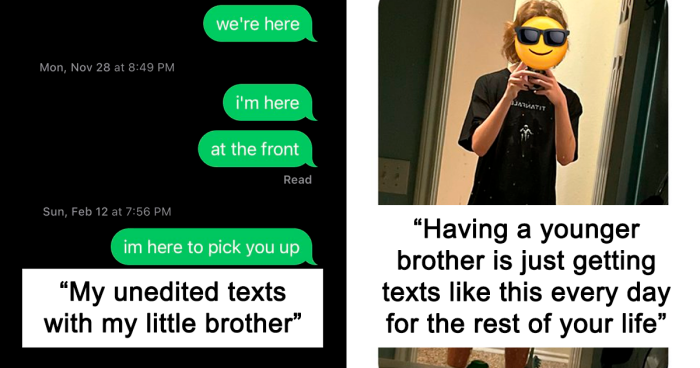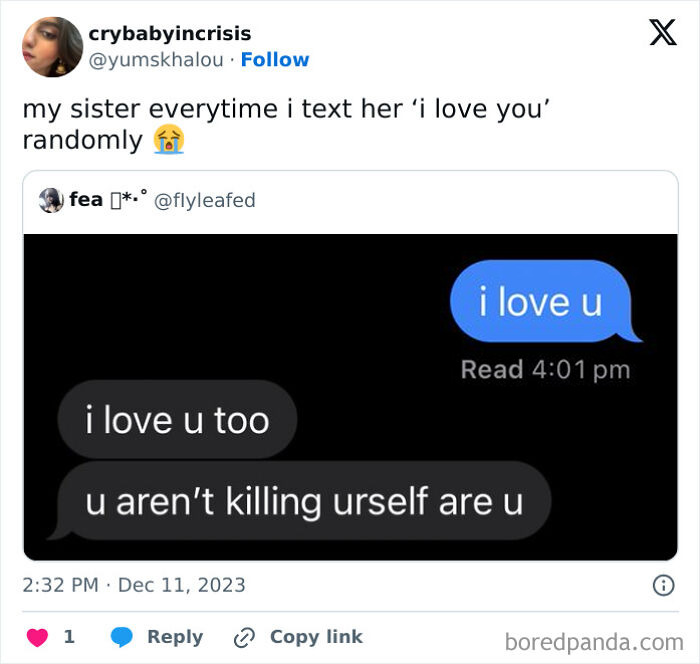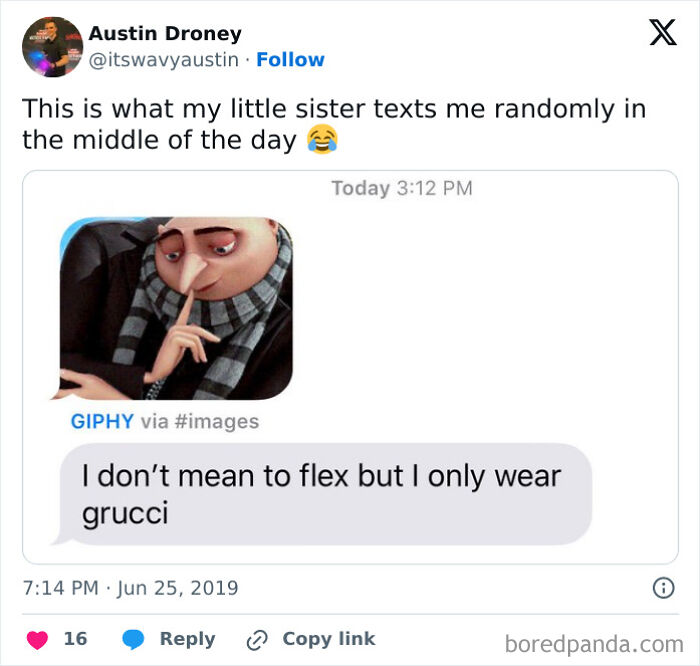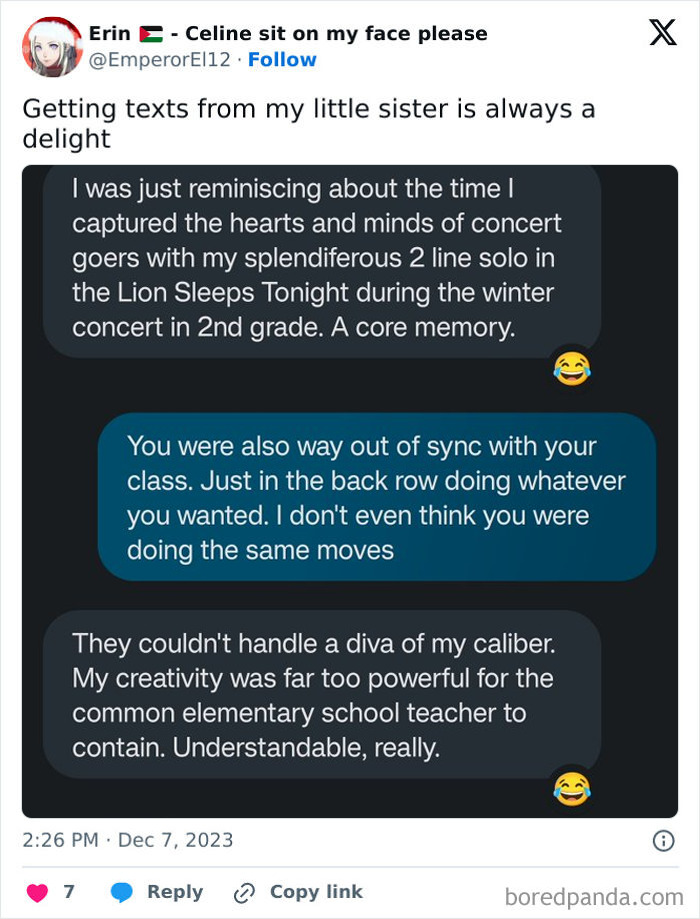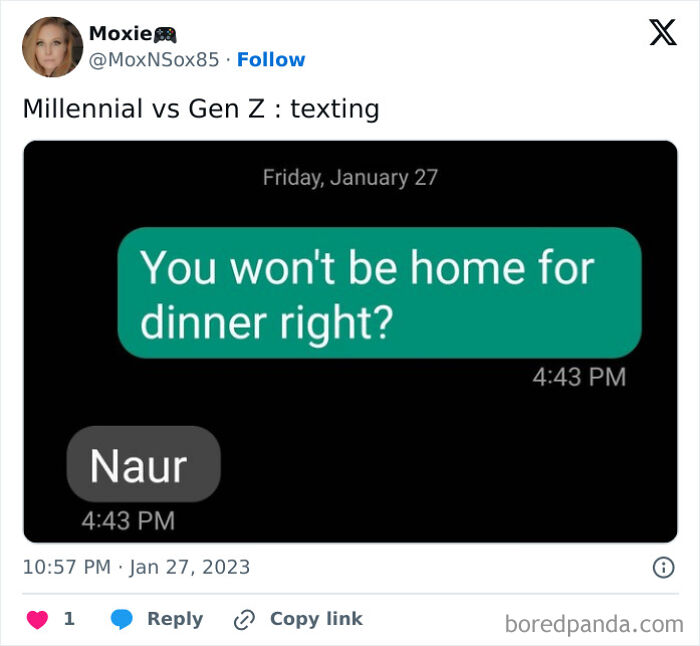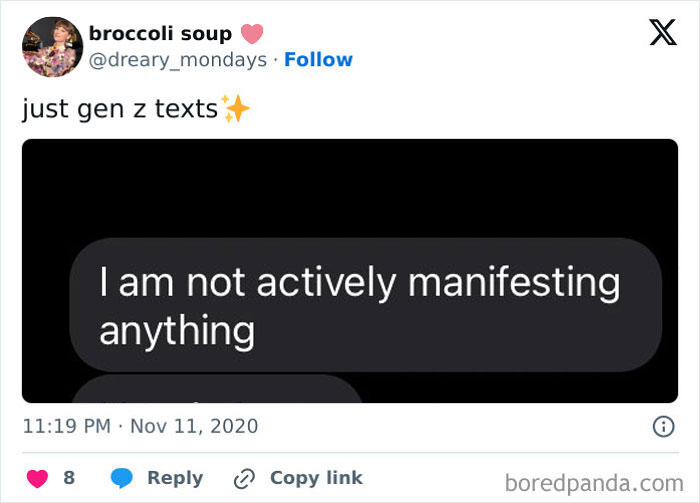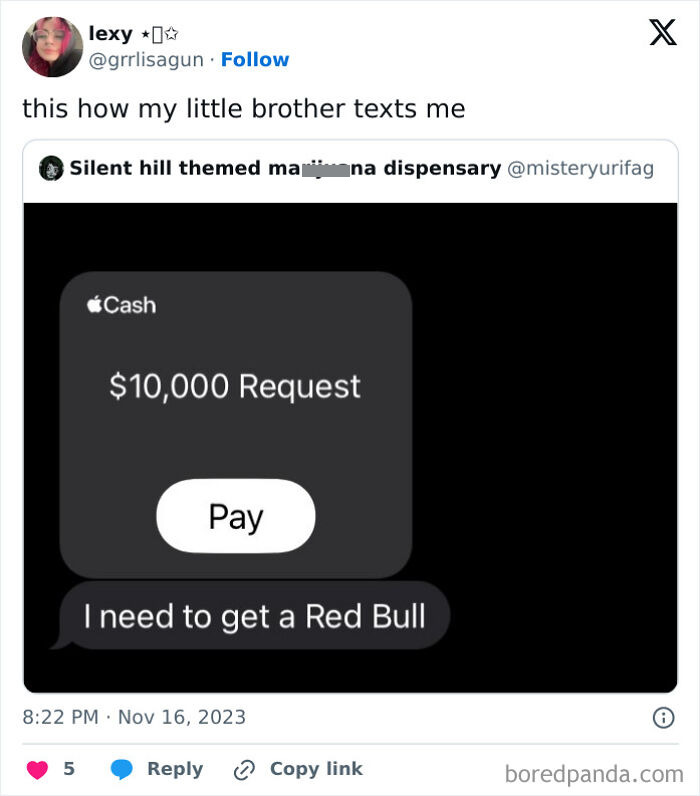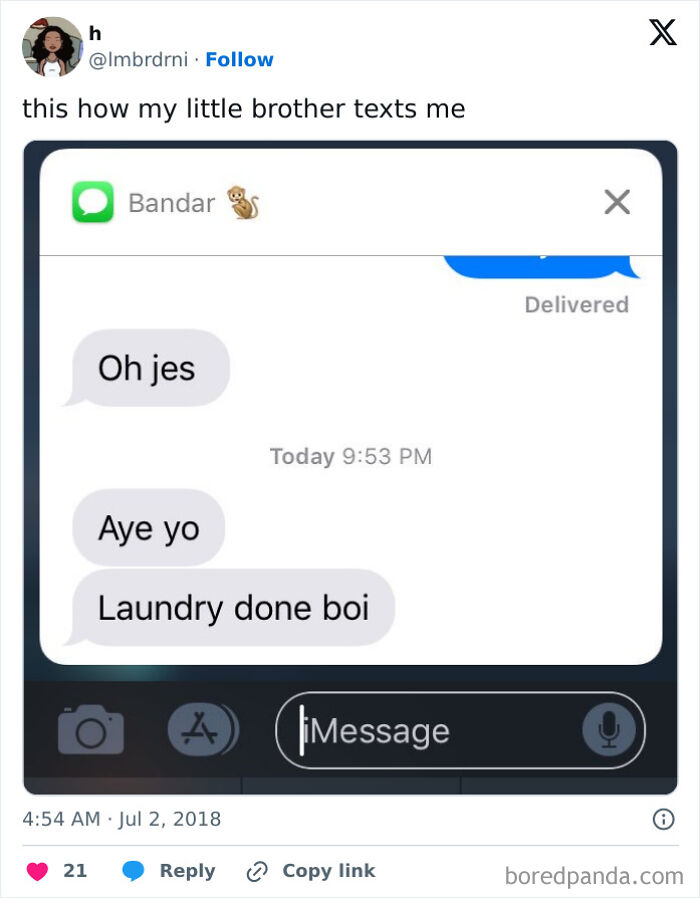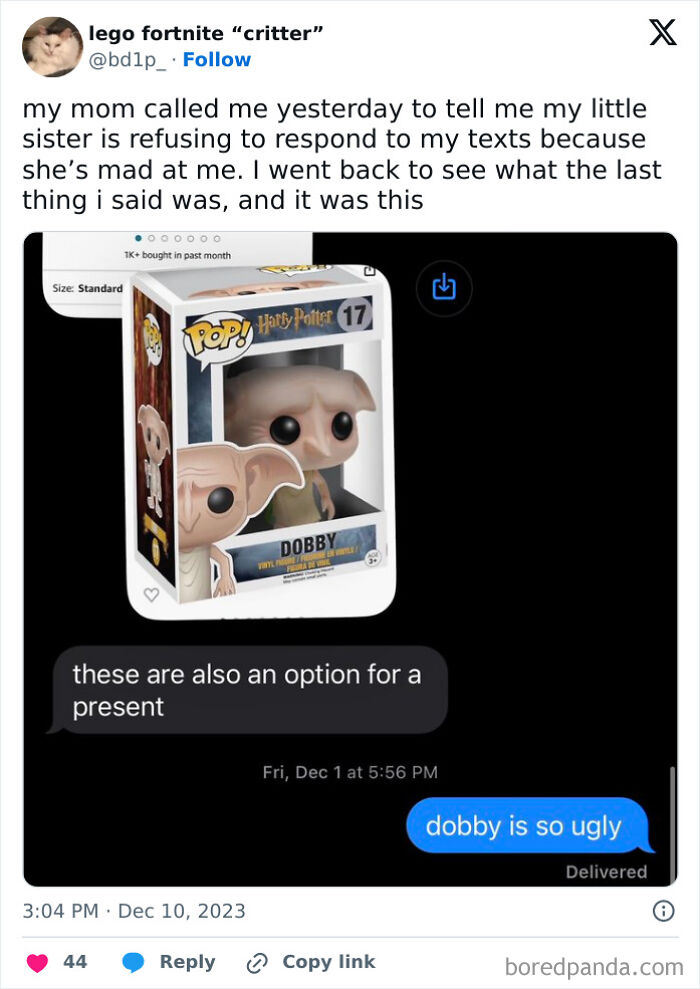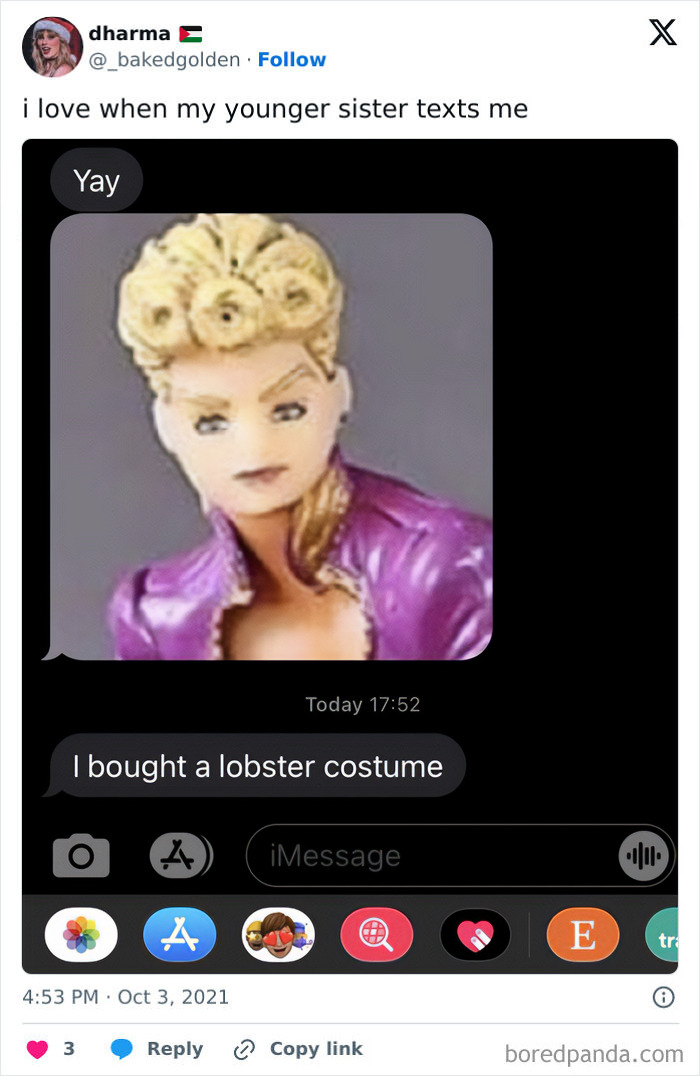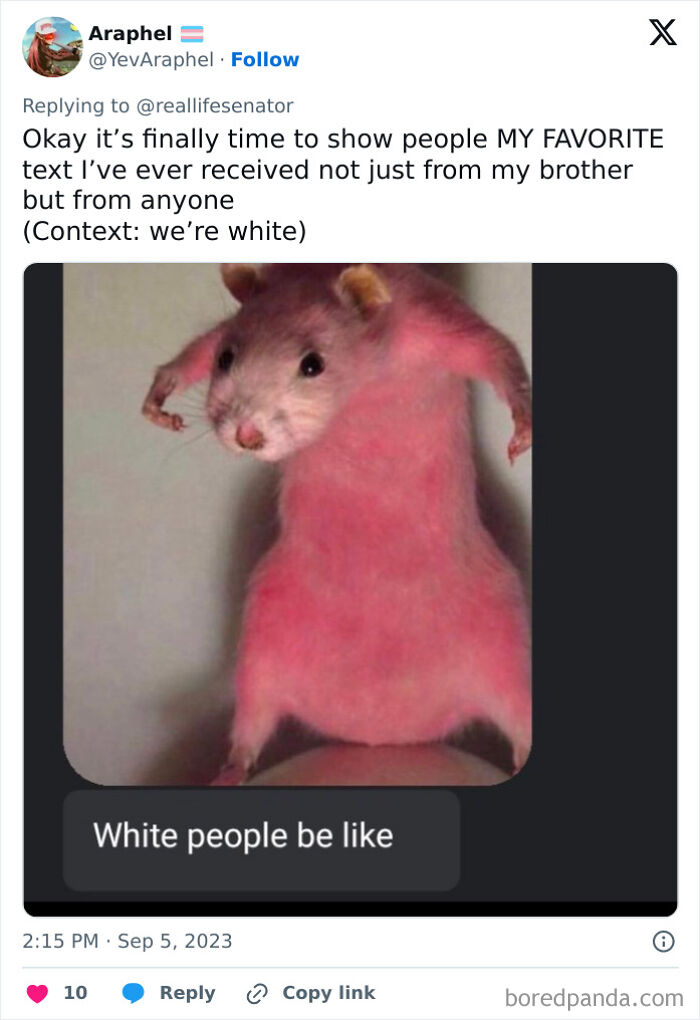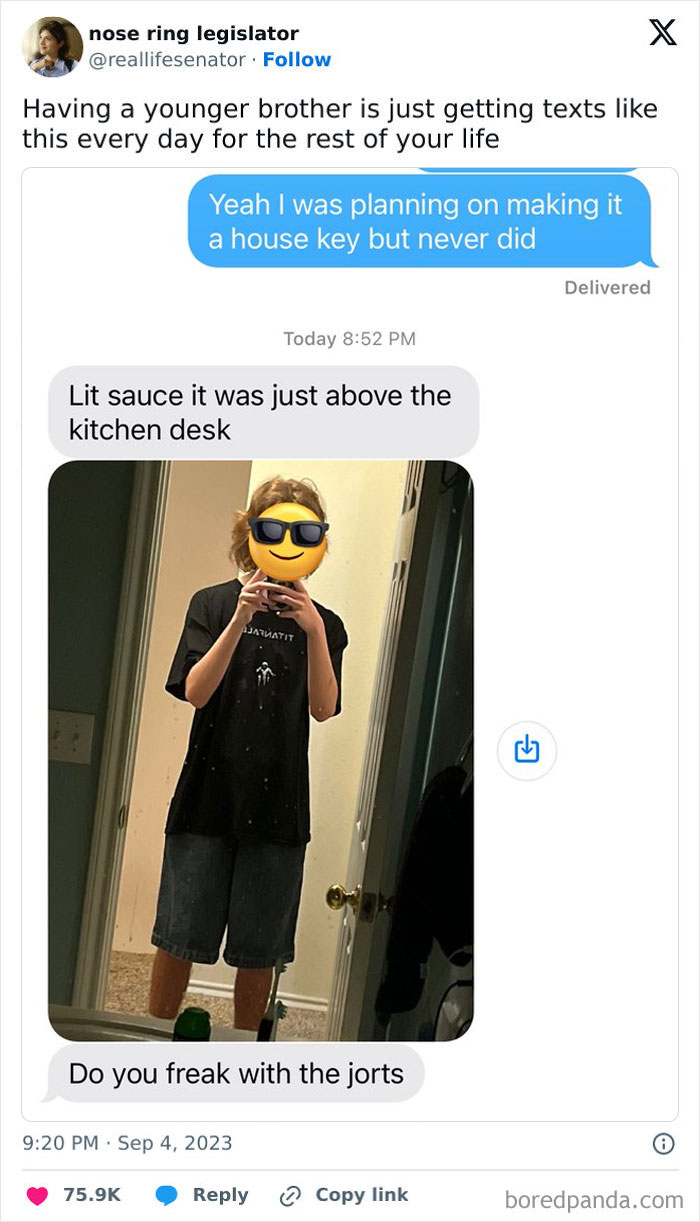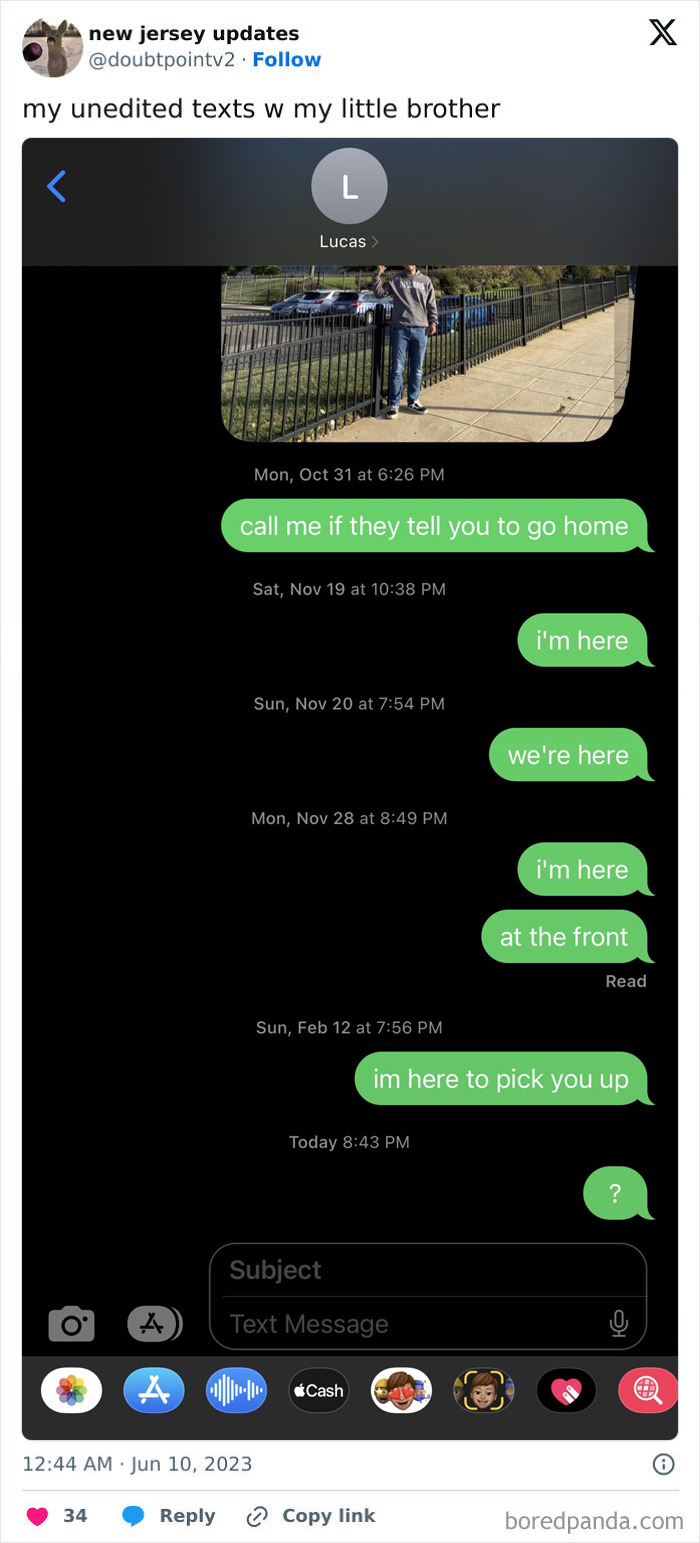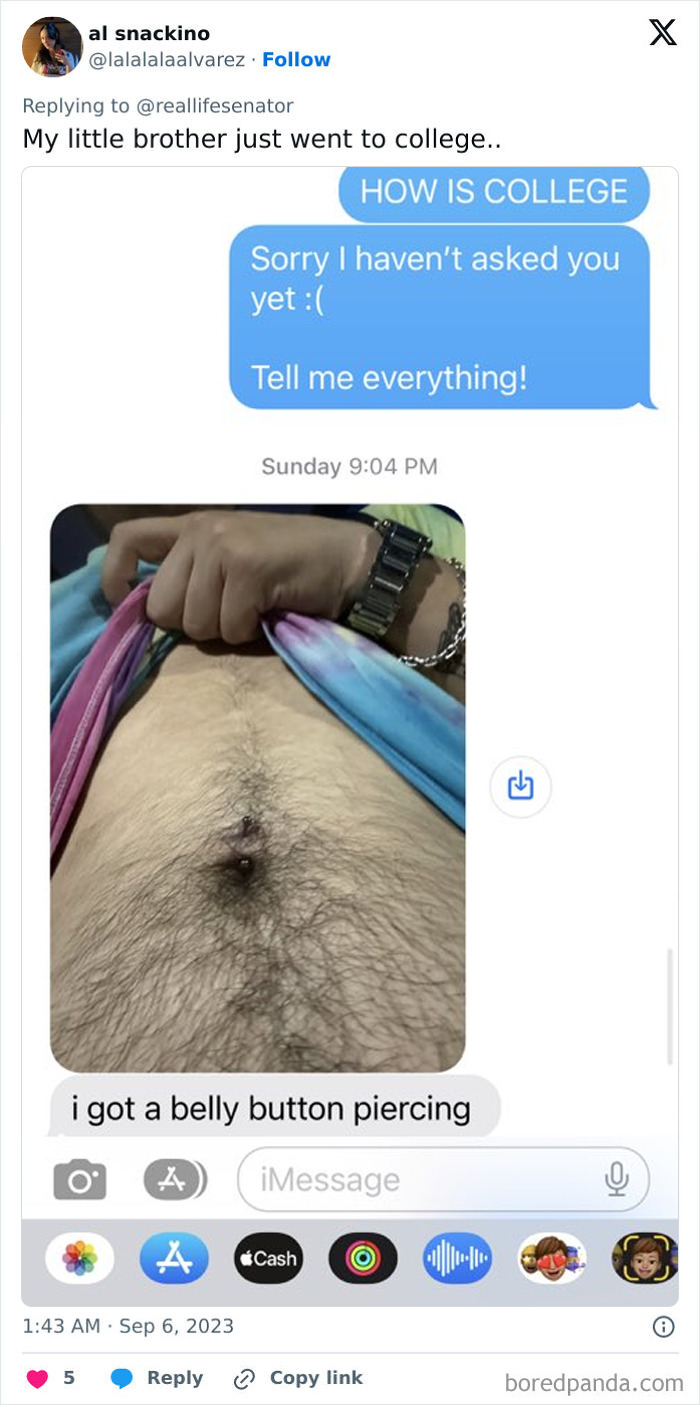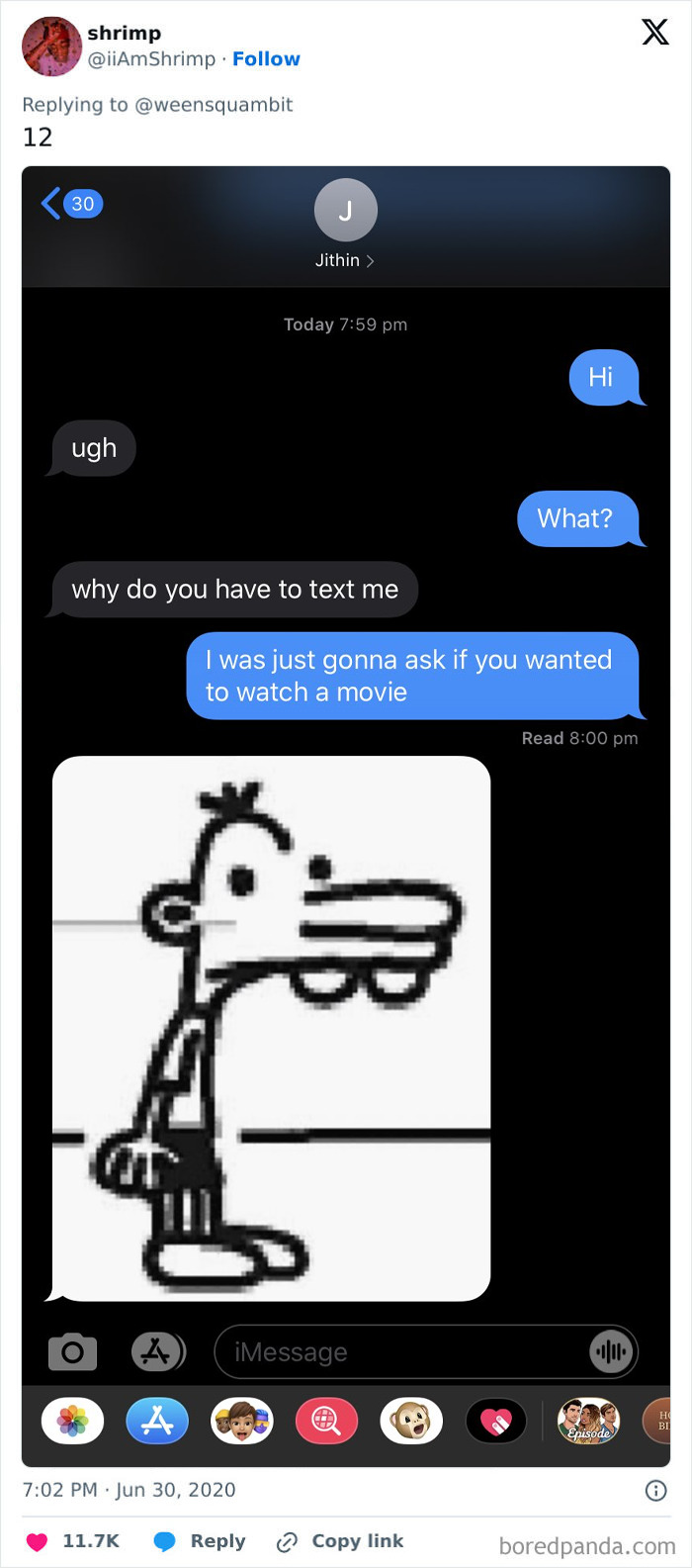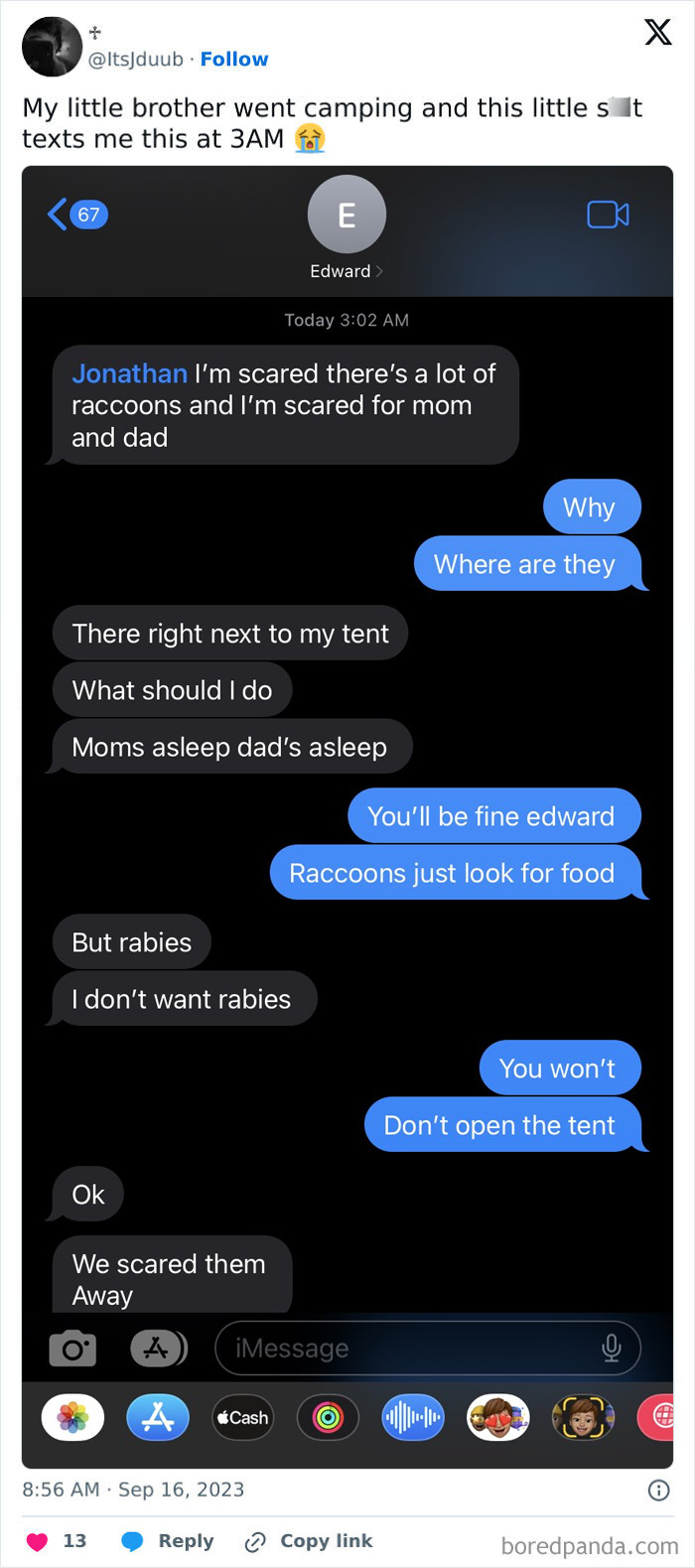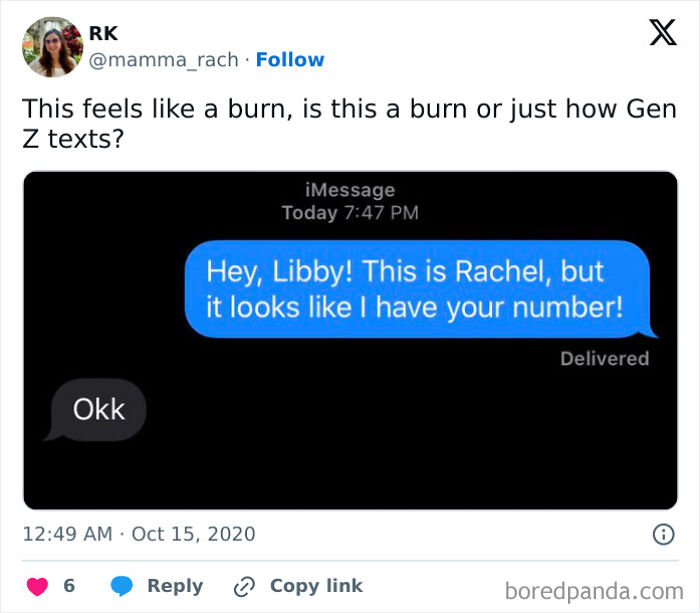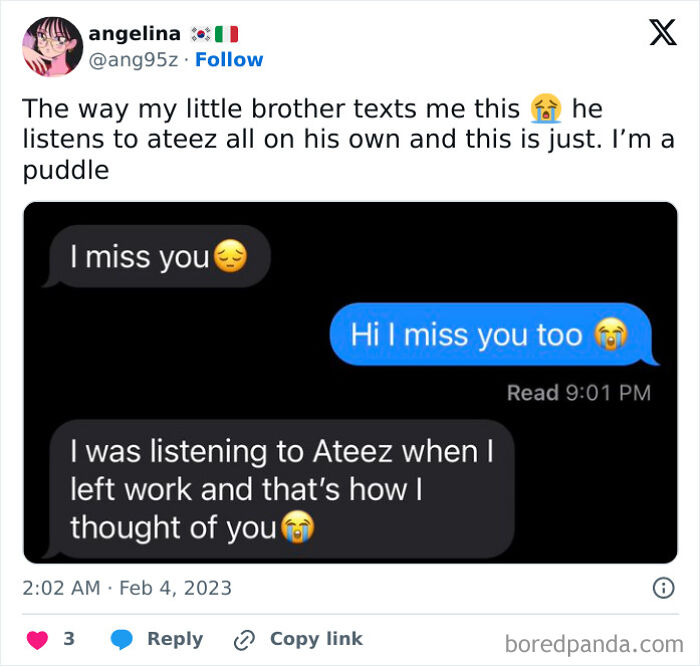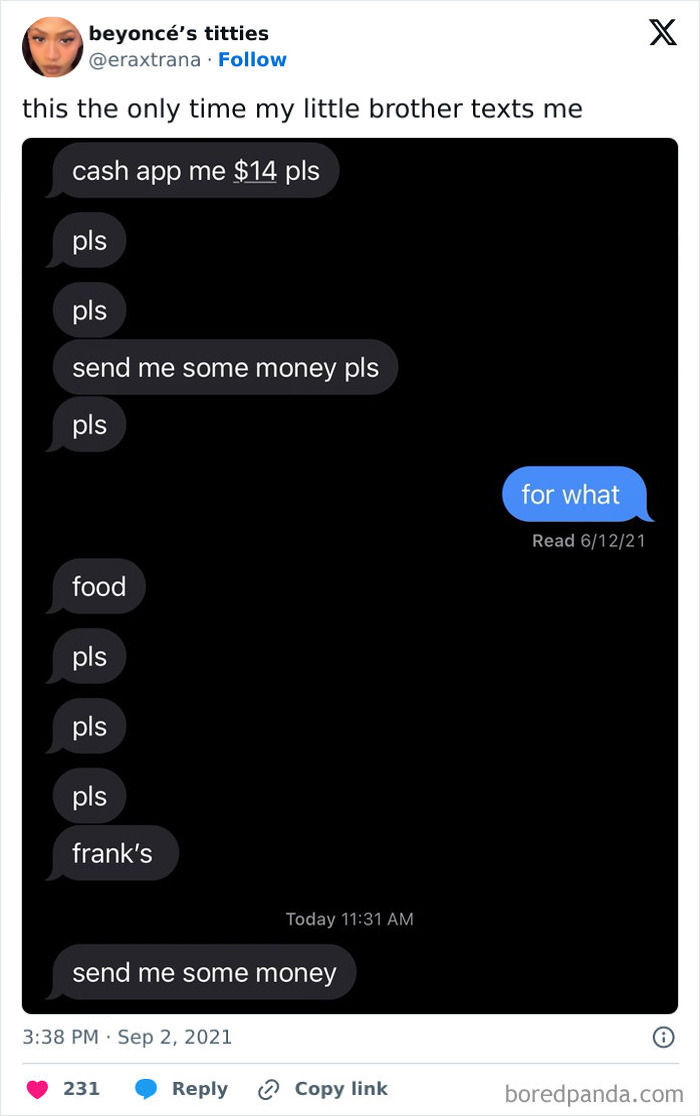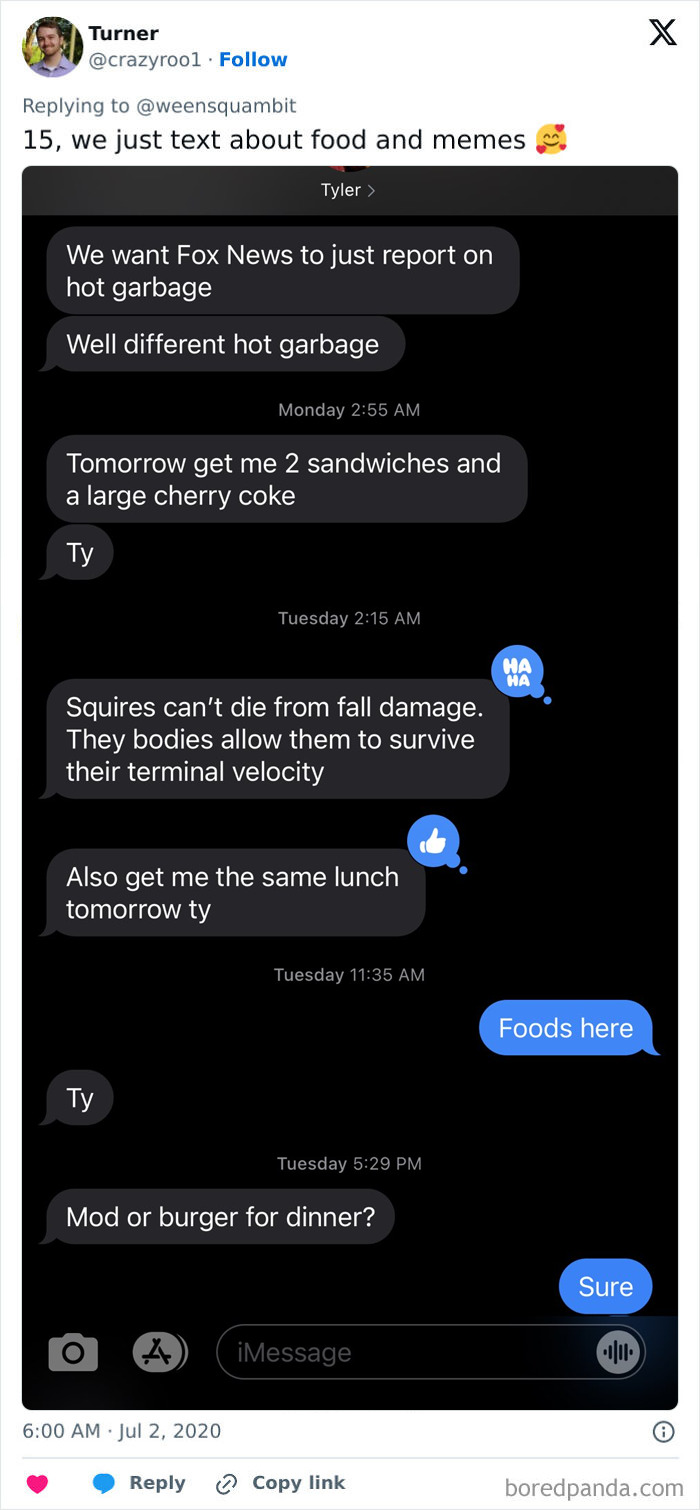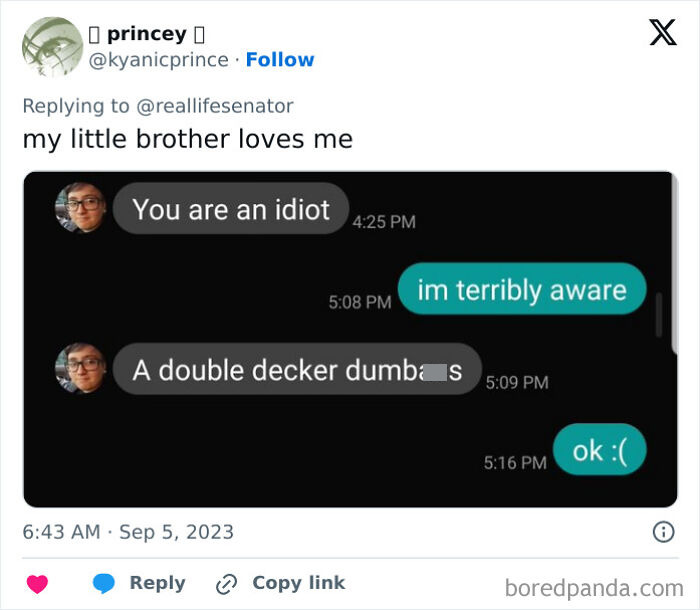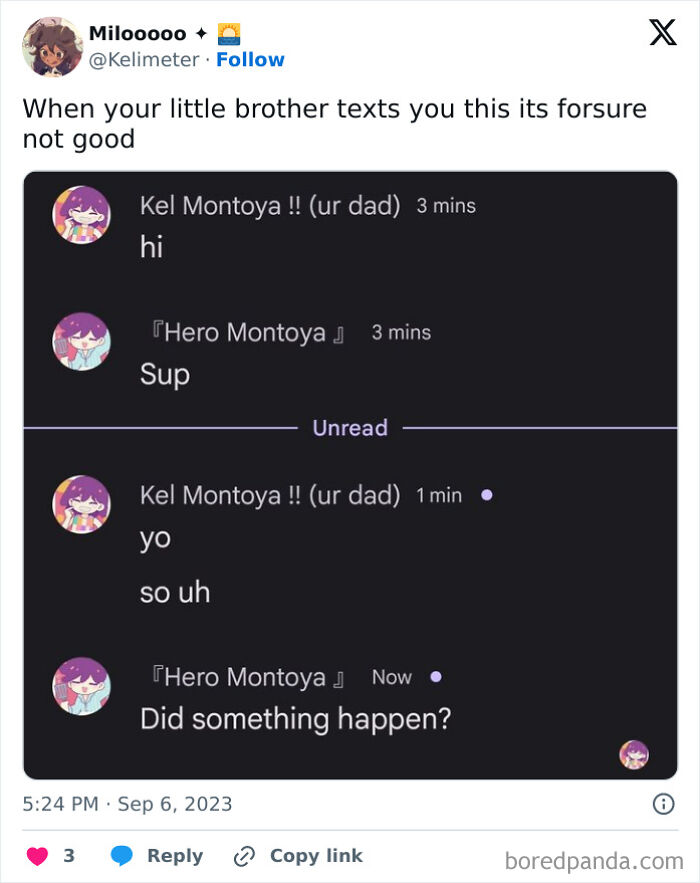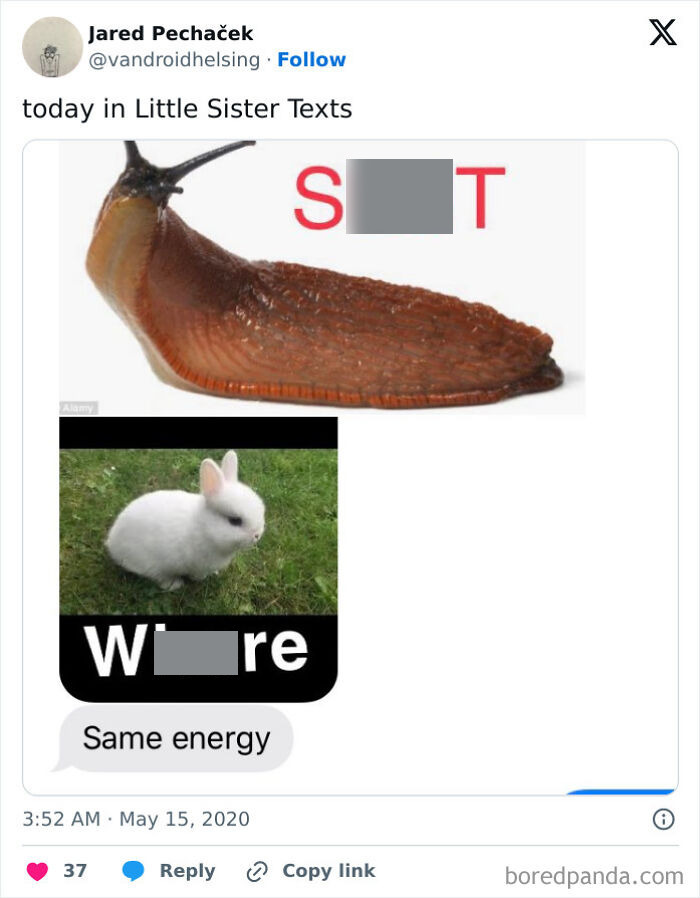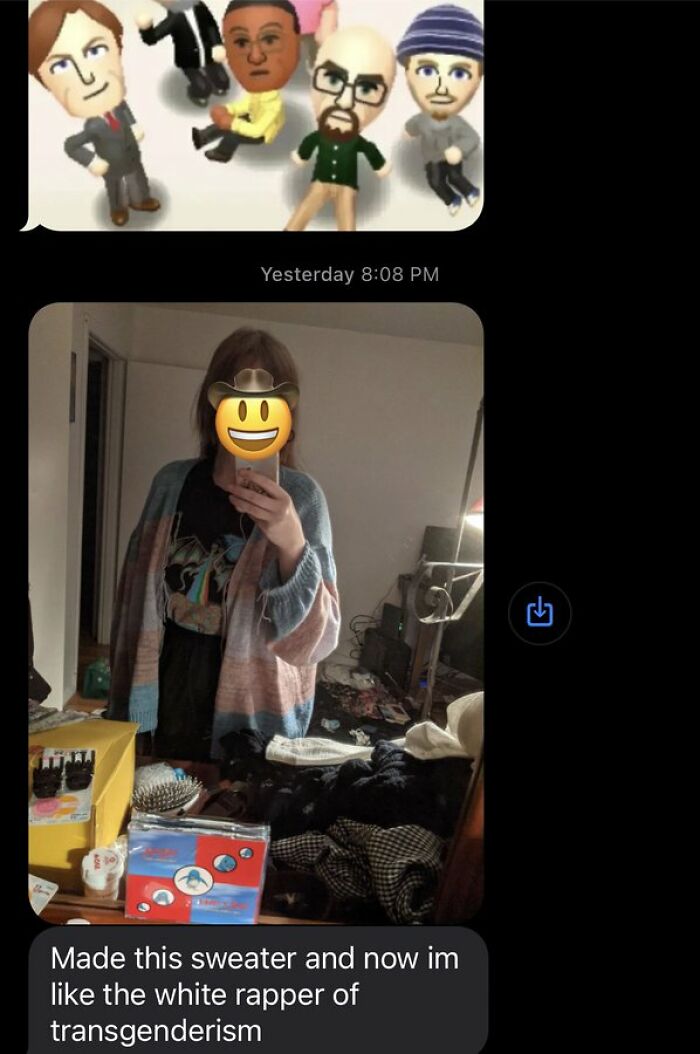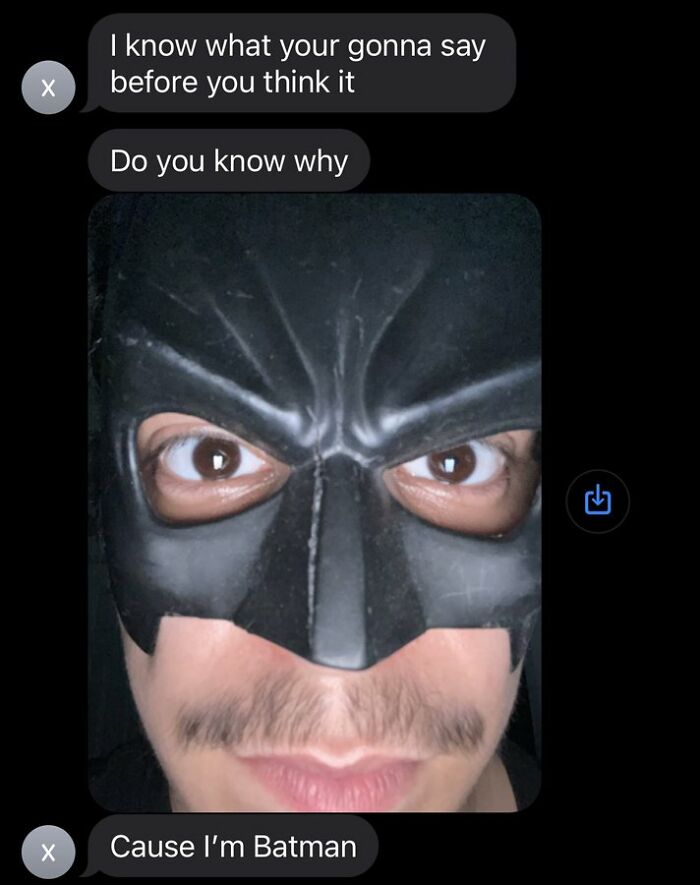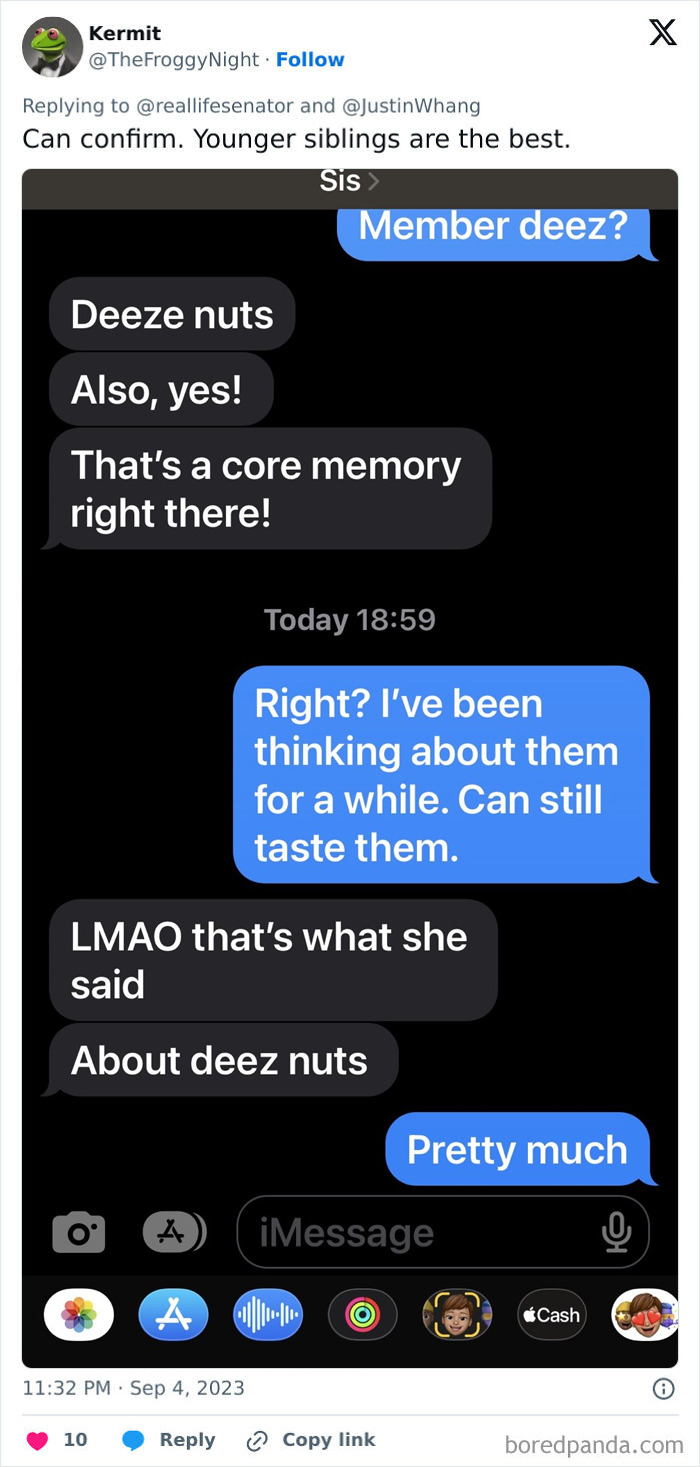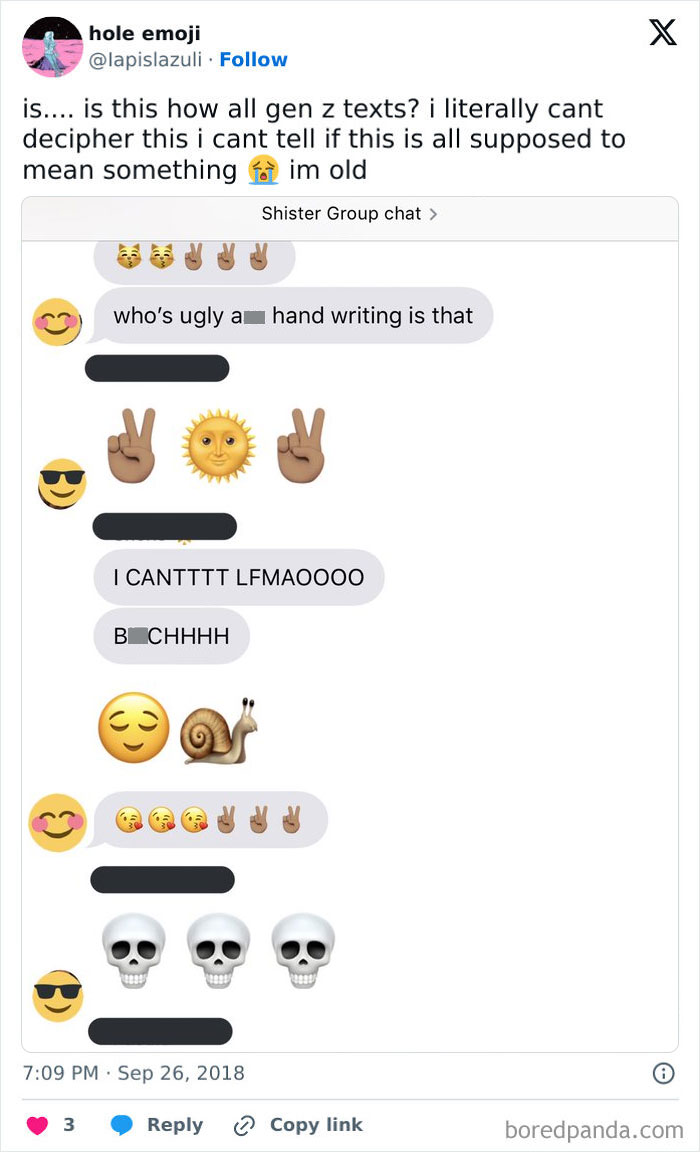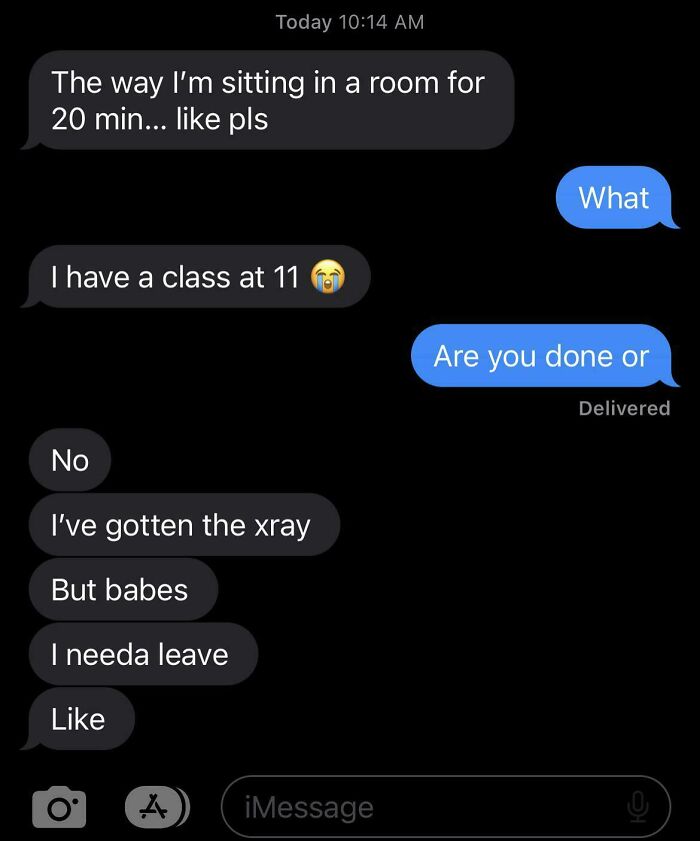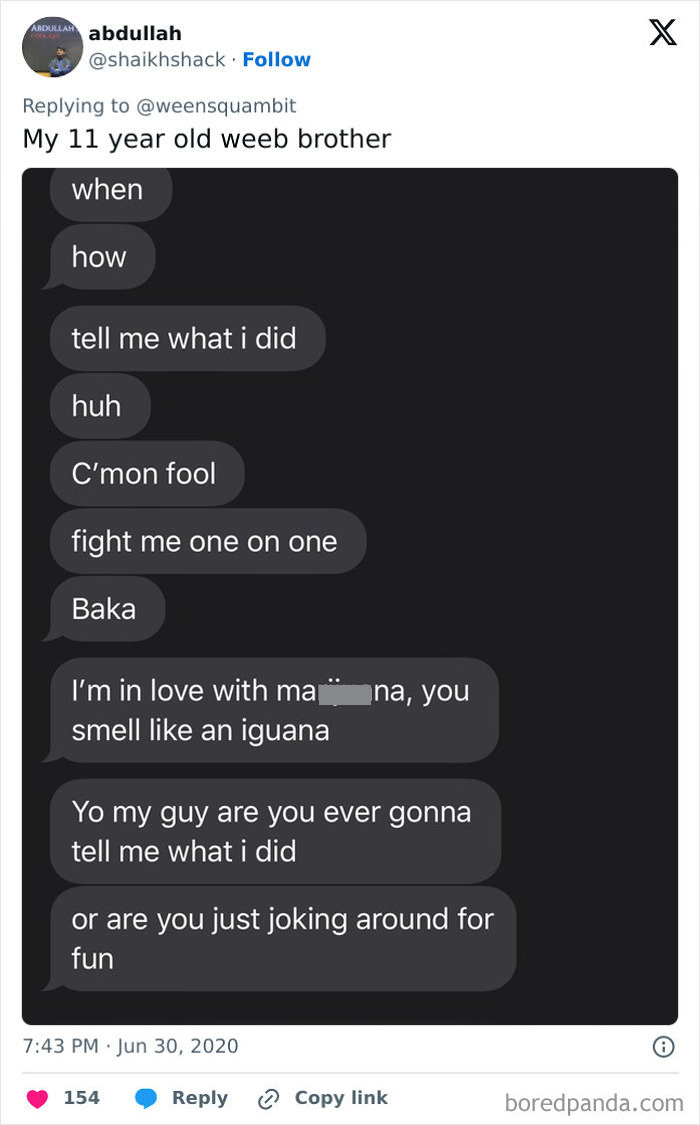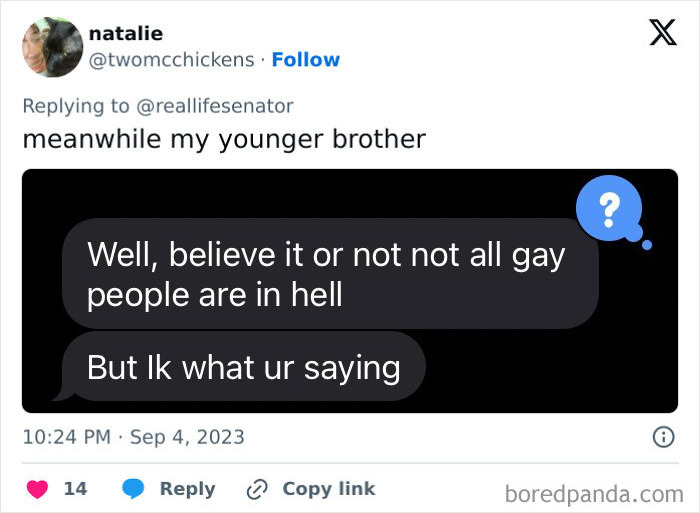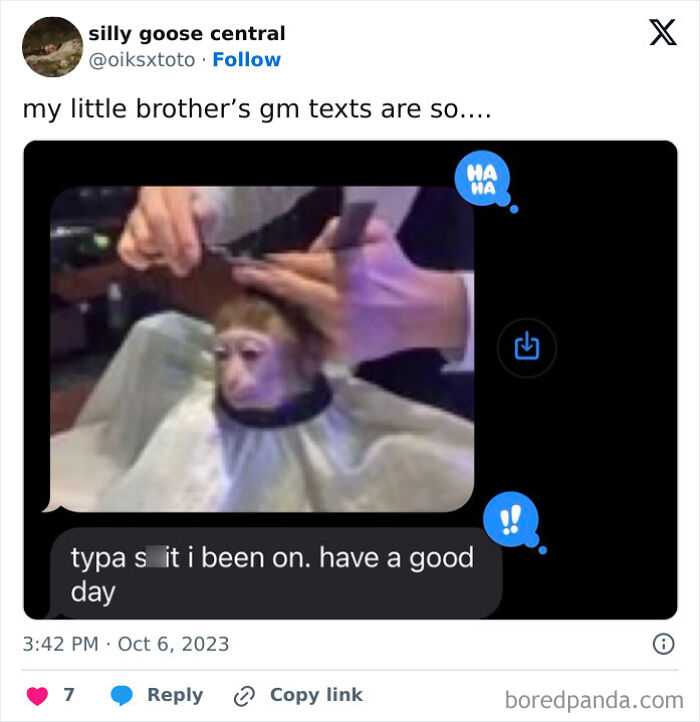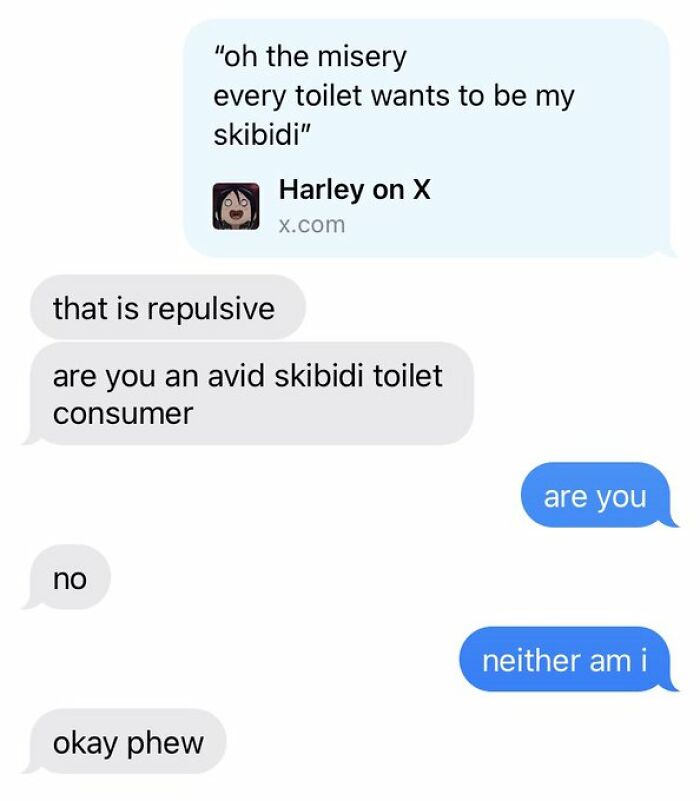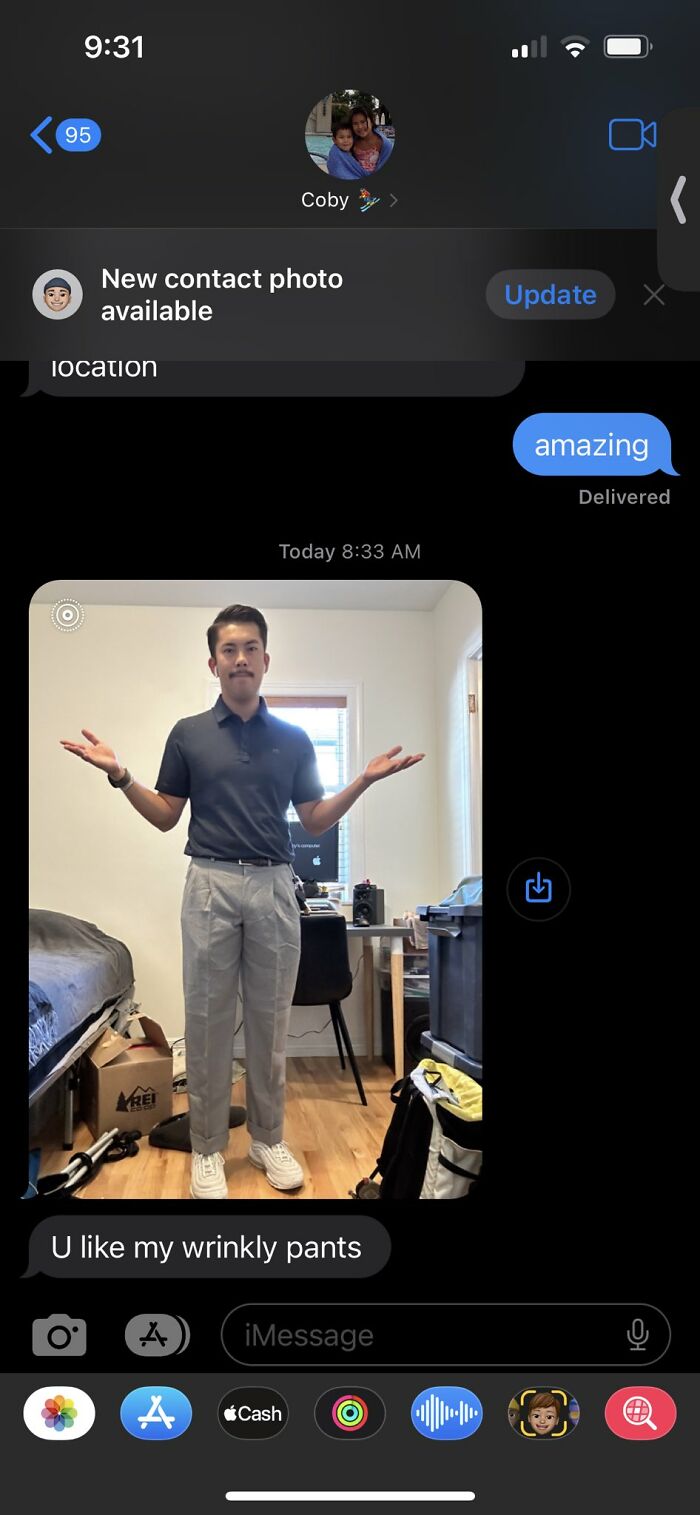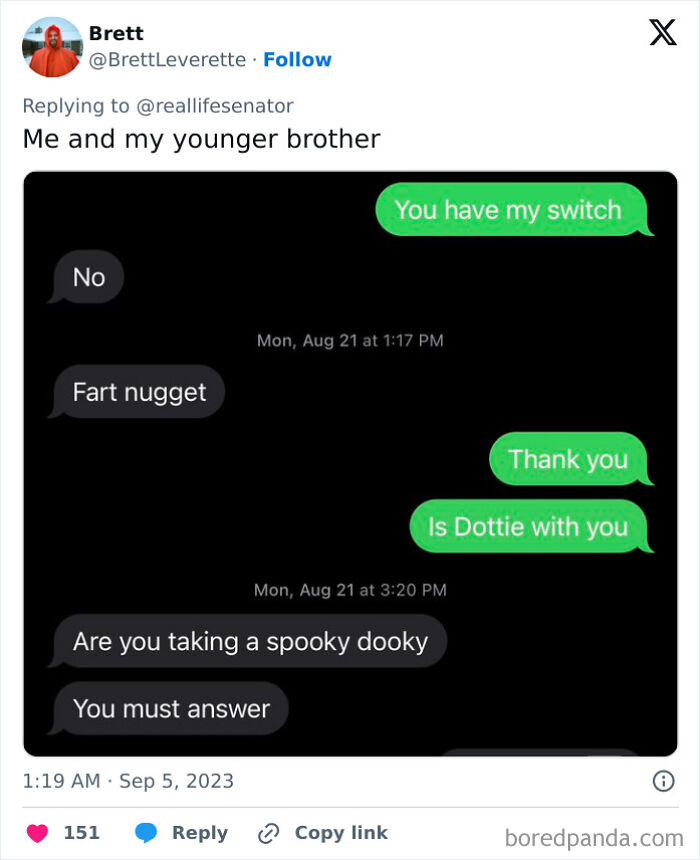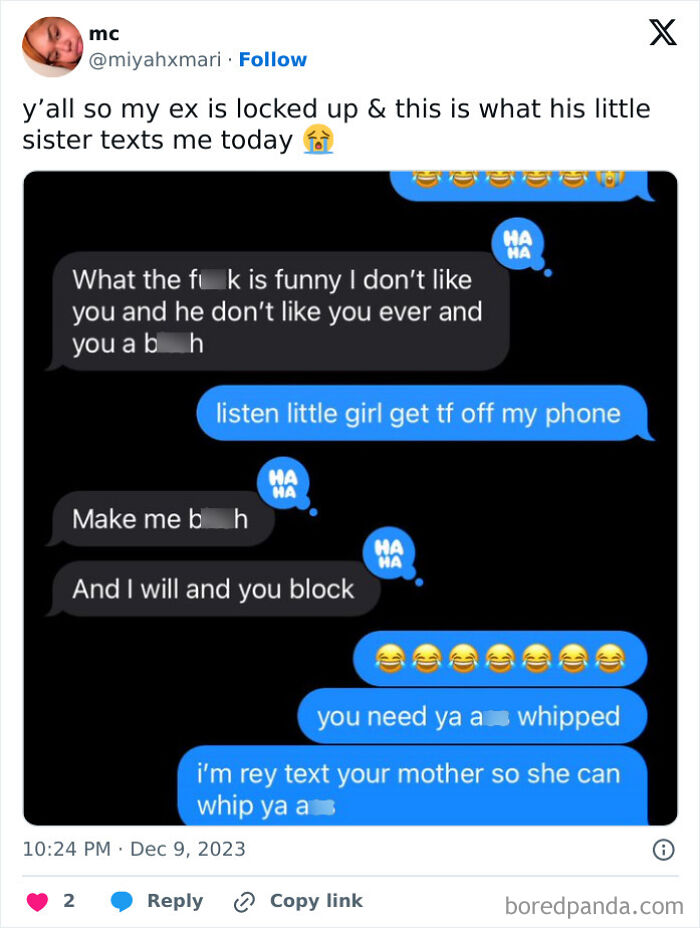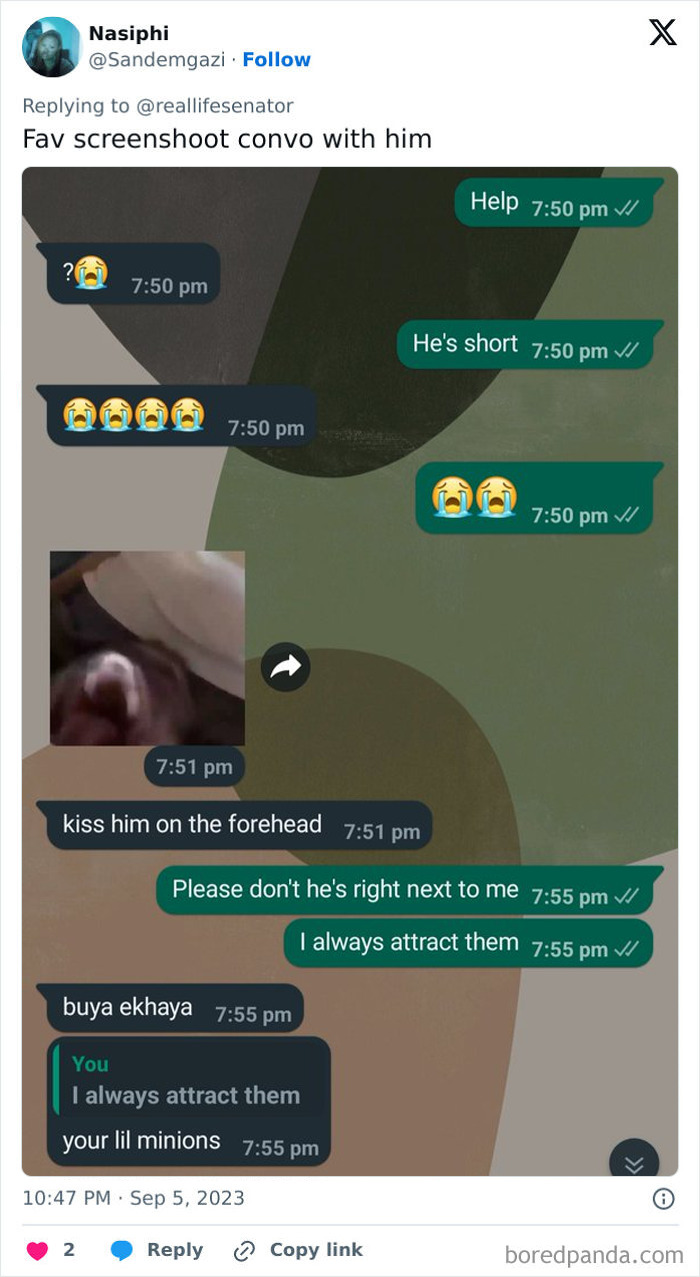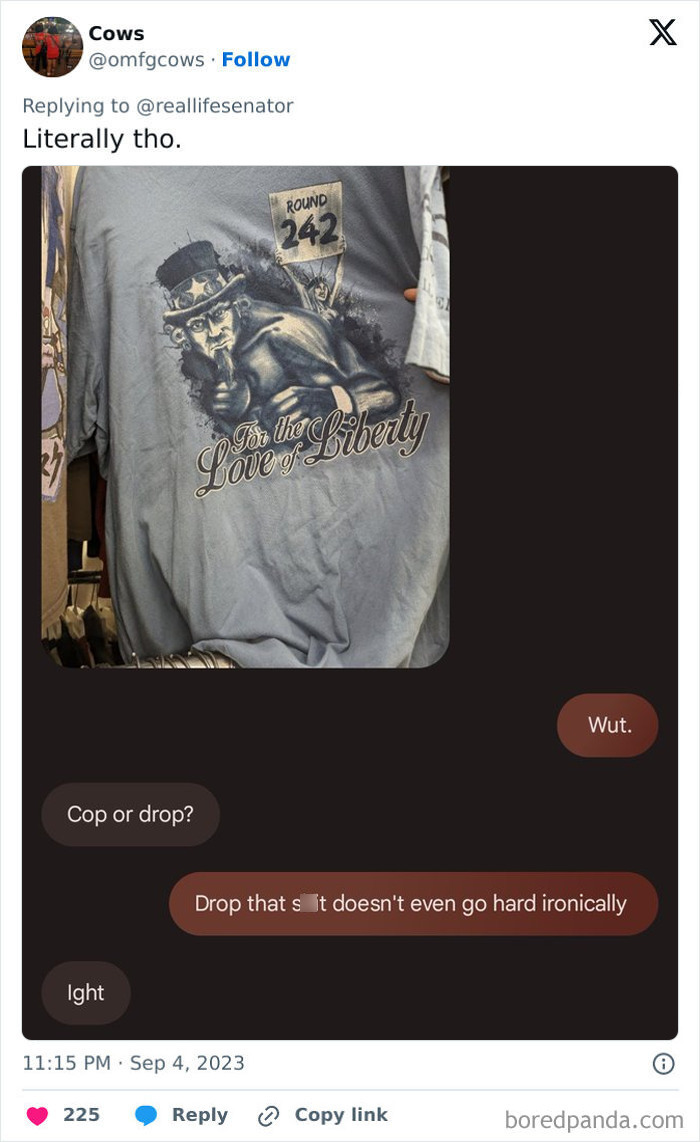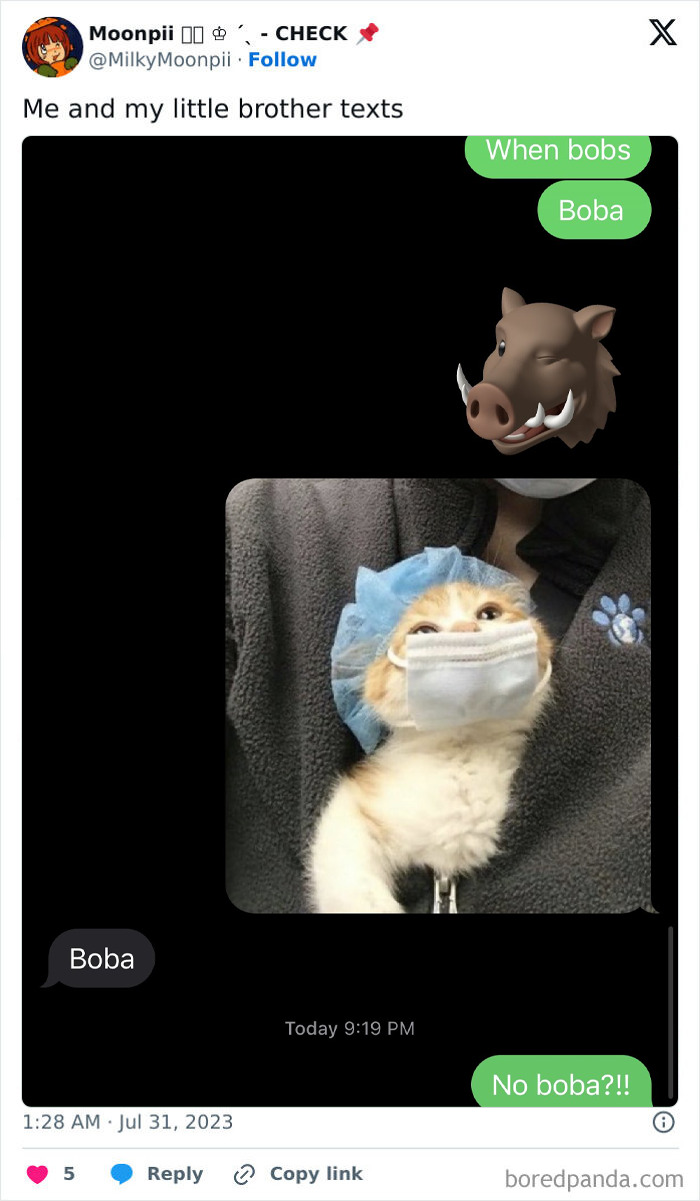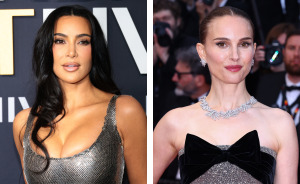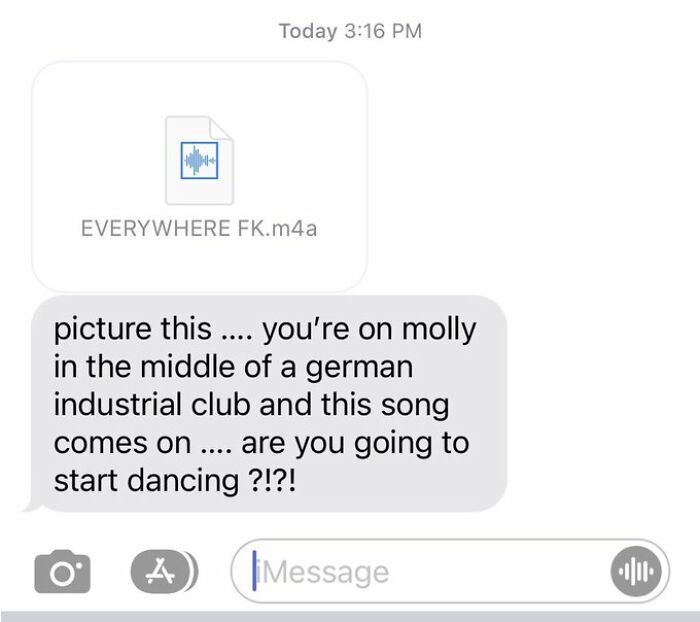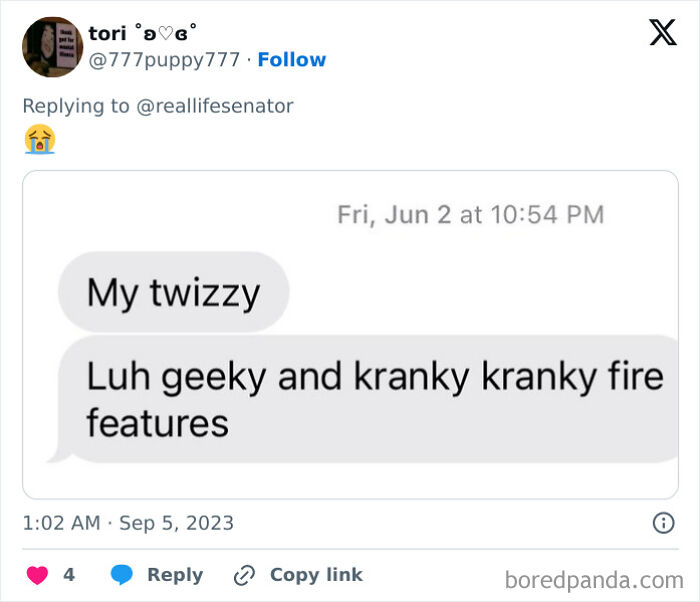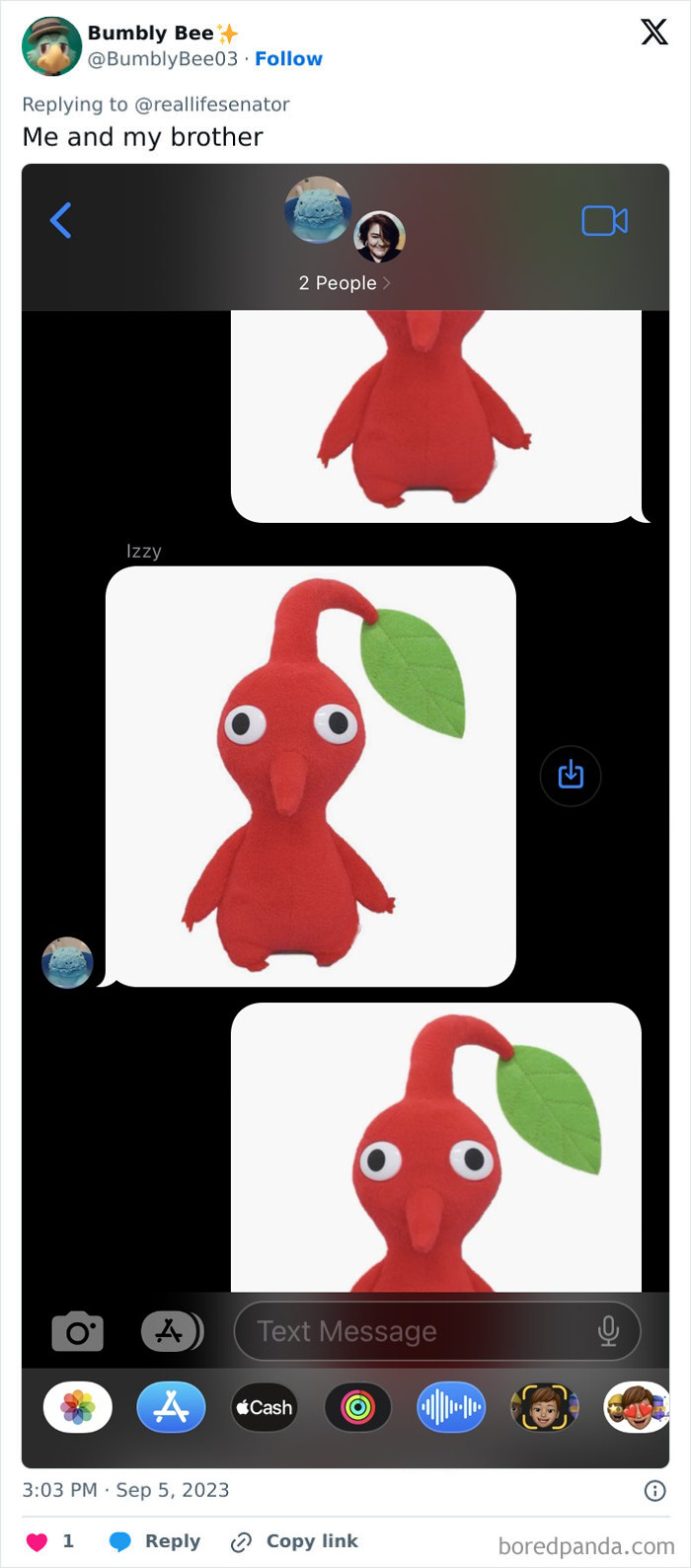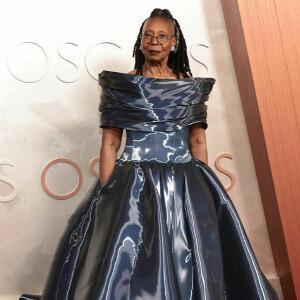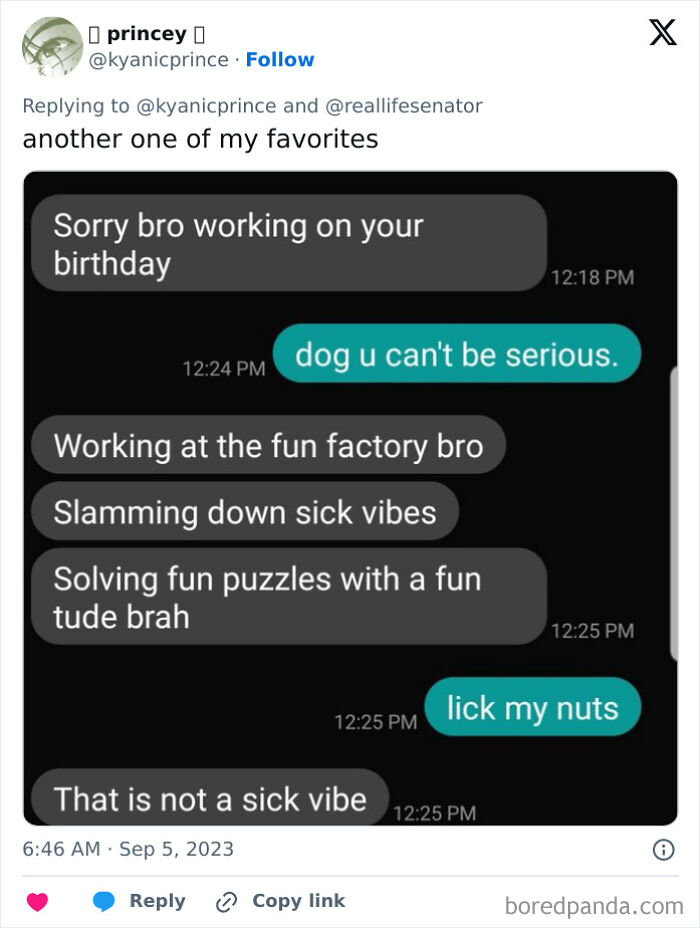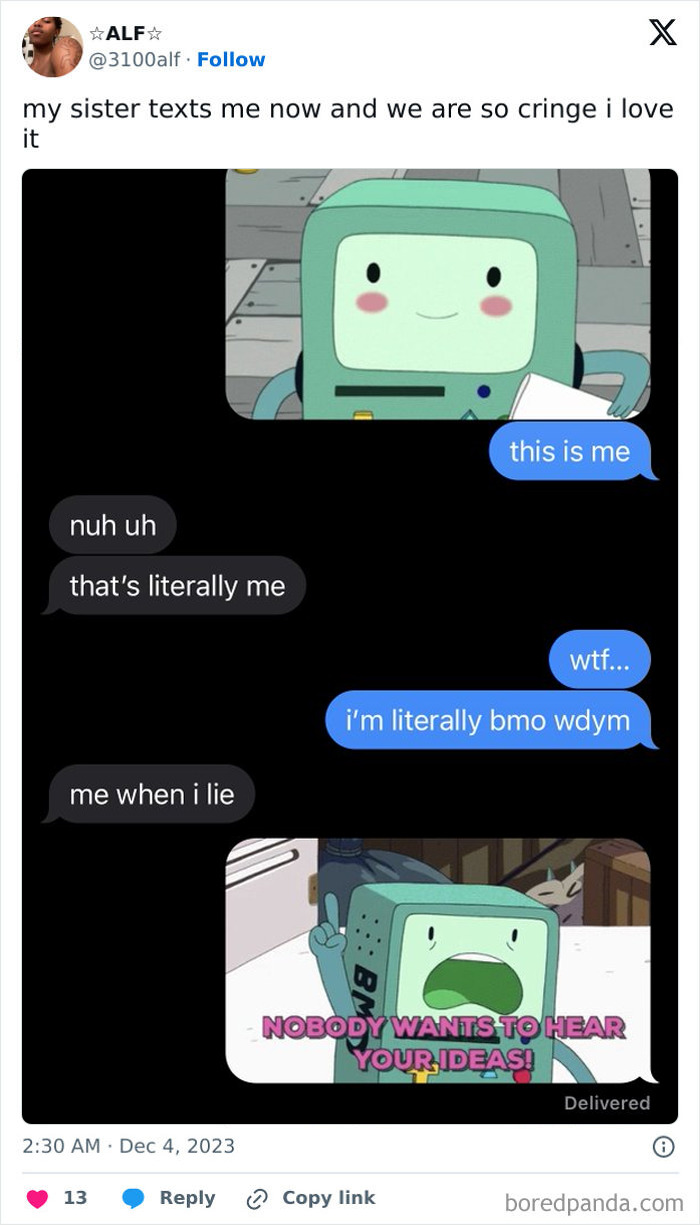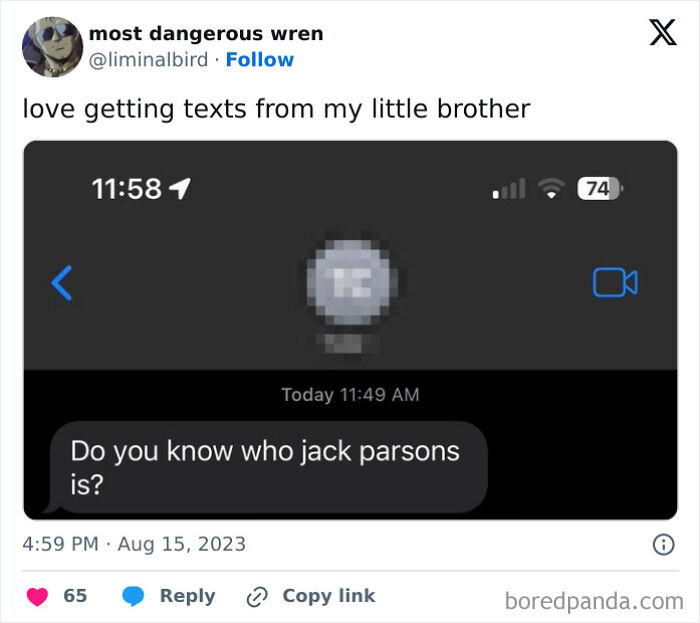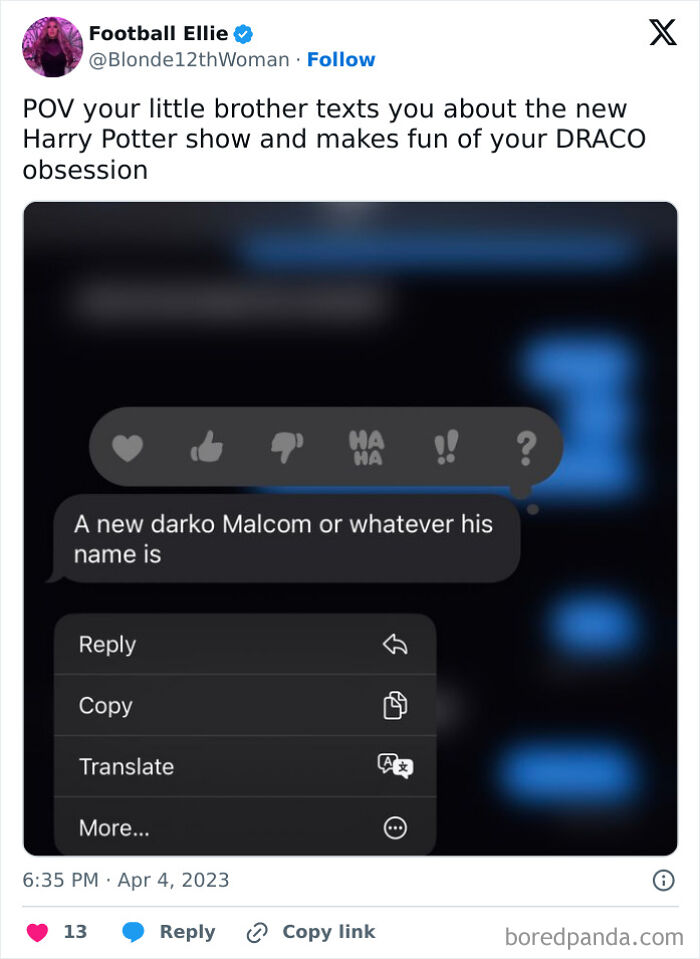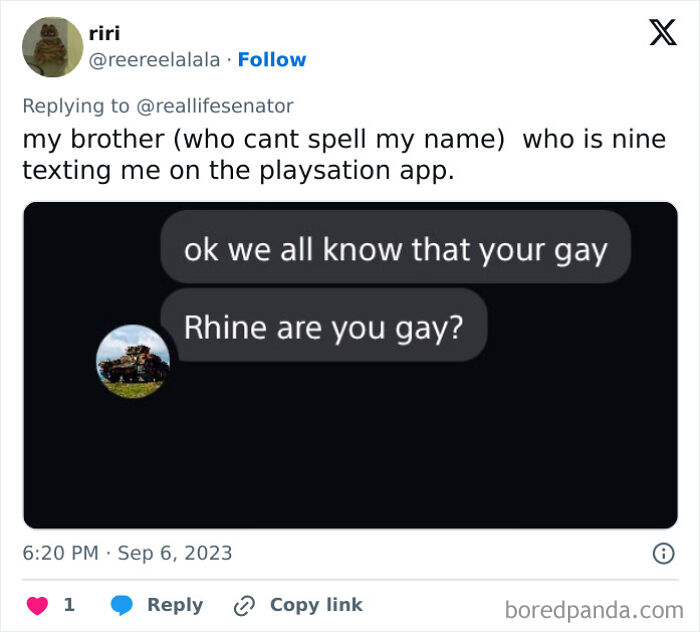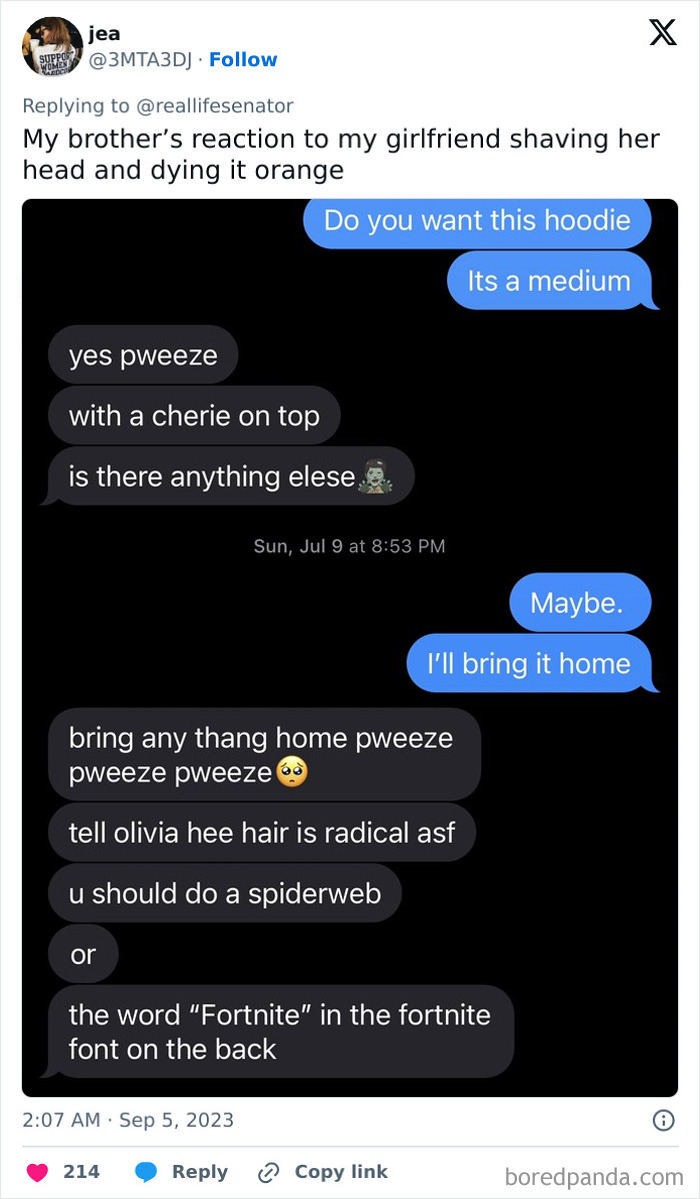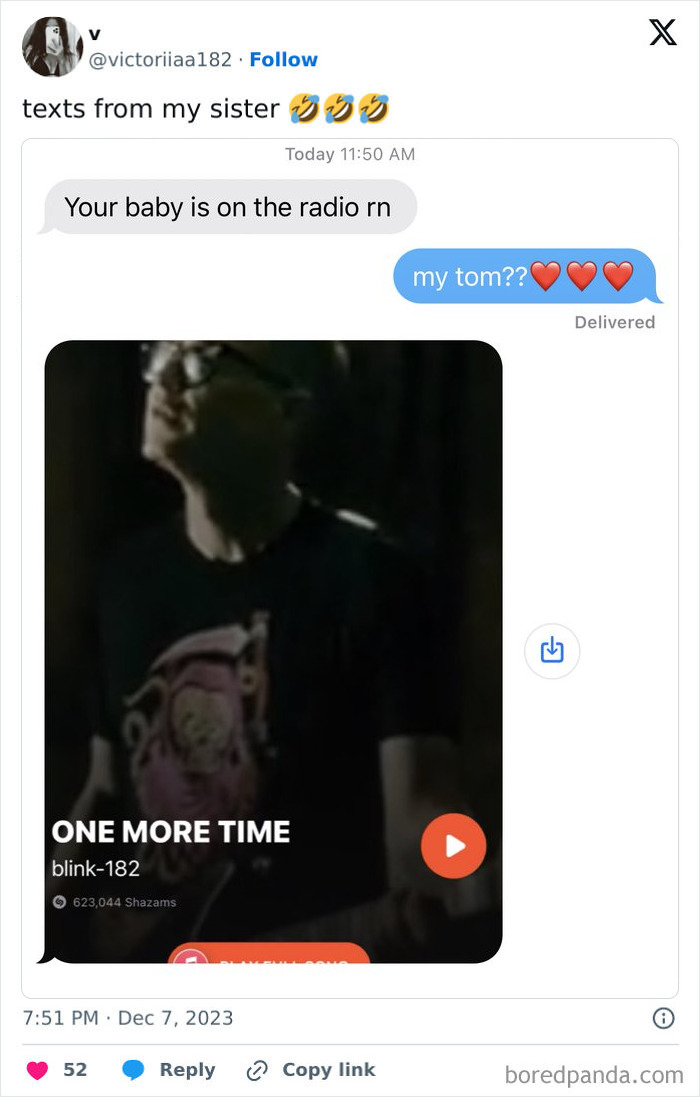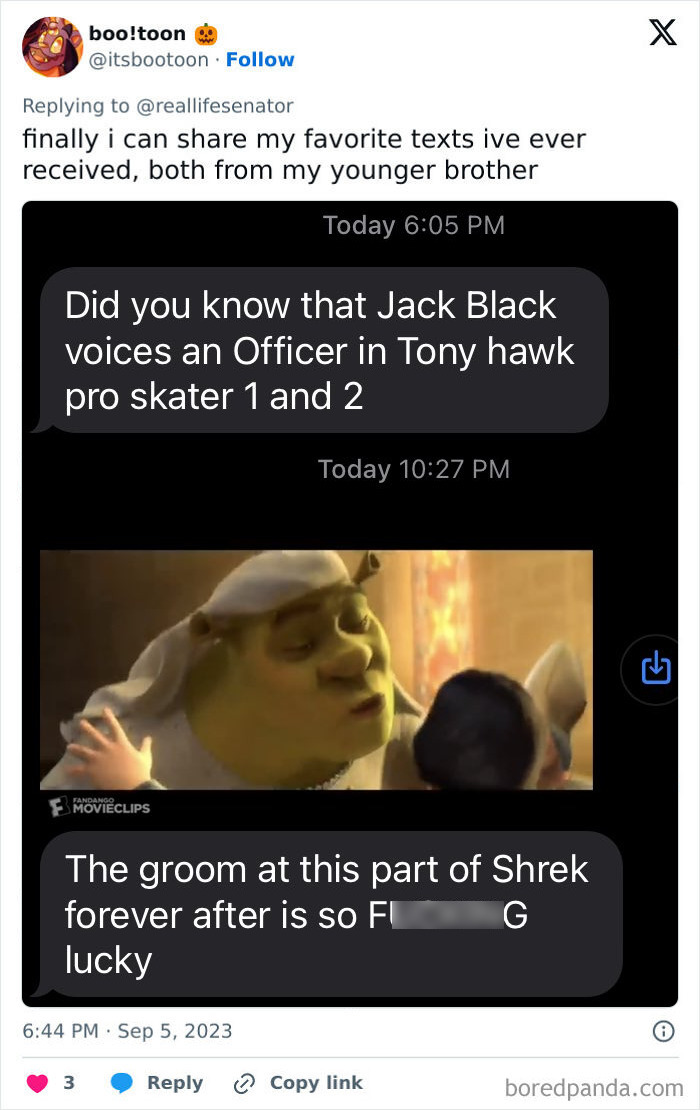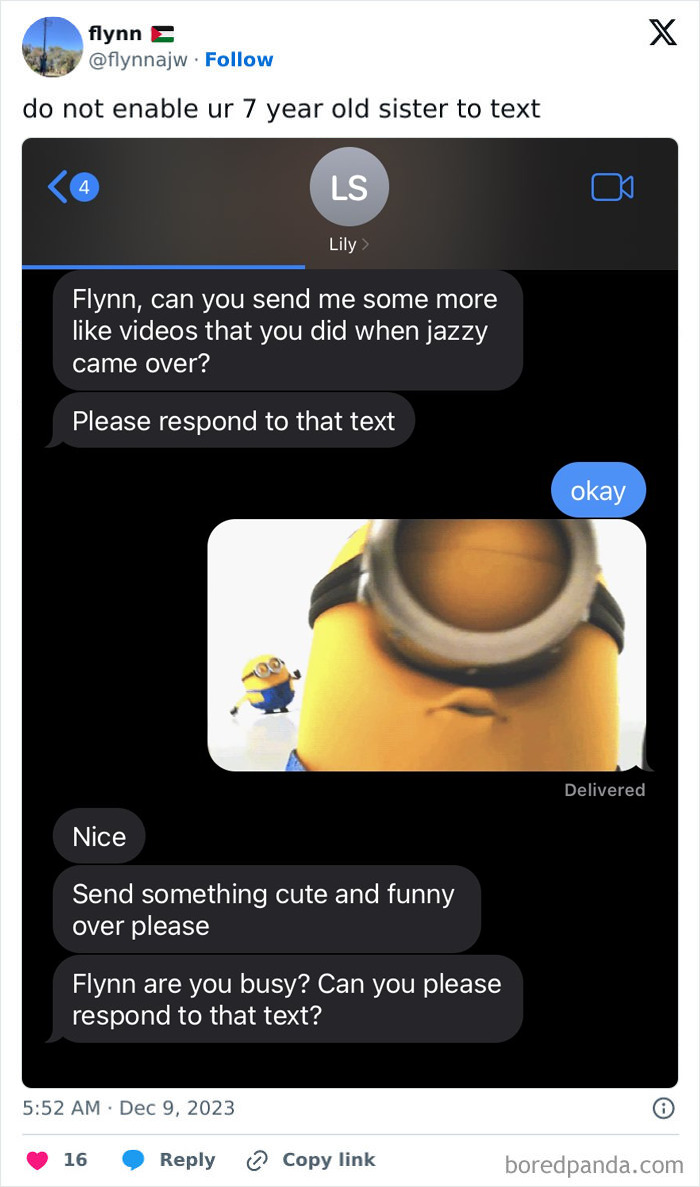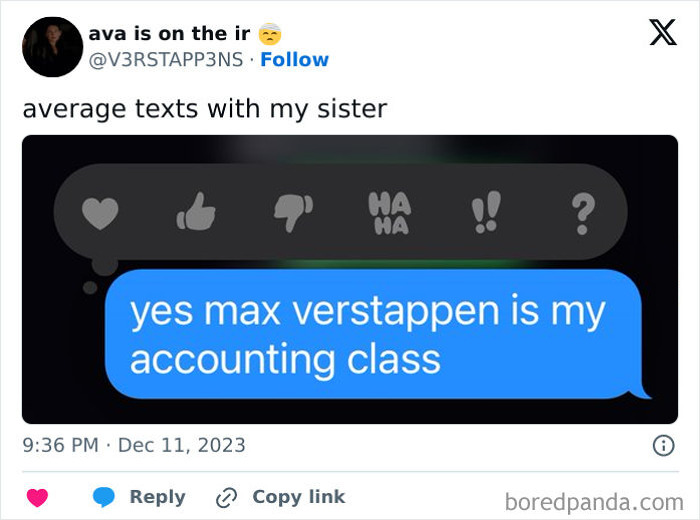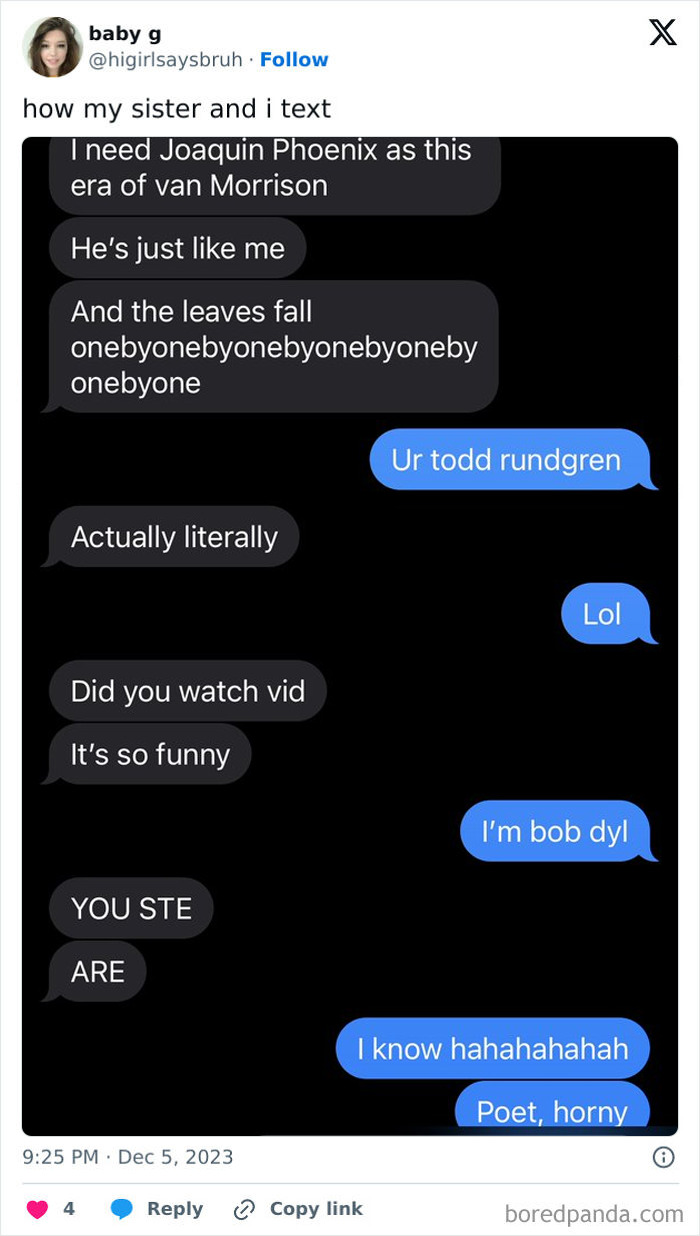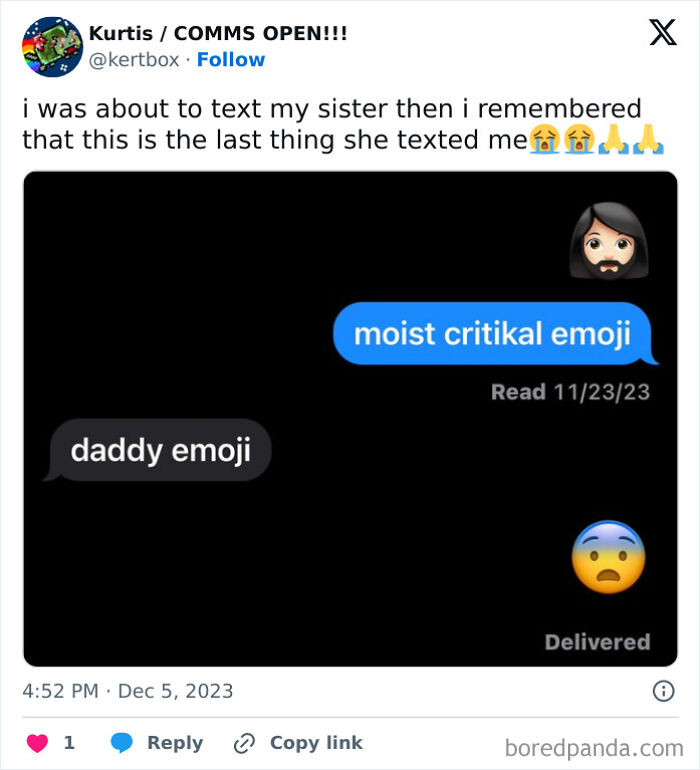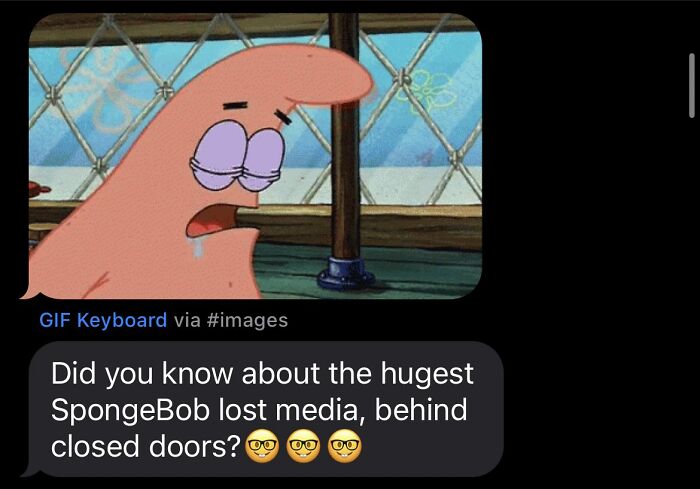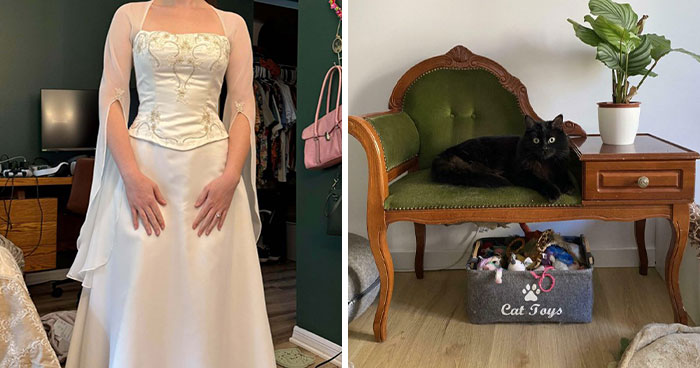Among all the ways of communicating, Gen Z prefers texting to anything else. It’s brief, not so formal, and very convenient. They even have their own etiquette and language for it. Messages without full stops, the peculiar use of emojis, and words you’ve never heard before are just a few things you have to know if you want to speak their lingo.
However, it seems that the older generations can’t quite keep up with the current texting trends anymore. Millennials receiving a text from Gen Z now equals deciphering a secret code.
To shed some light on how young people message, our Bored Panda team has provided a list of screenshots that perfectly reflect their language in written conversations. Keeping your Google search open might be necessary as you explore new ways Gen Z is spicing up their communication.
This post may include affiliate links.
Gen Z is opting to text mostly because of their anxiety about phone calls. New research has shown that nine out of ten young people would rather message than talk on the phone, with some describing phone conversations as a phobia of theirs. They even admit that having an awkward conversation via phone is one of the top three things they would want to avoid in life. It turns out that talking on the phone is a skill, and we didn’t realize that because previous generations did it all the time.
Psychology professor Nick Haslam says that this shift to texting is also down to control, convenience, and multitasking—three things Gen Z values highly. Messaging allows people to communicate on their own schedule rather than having to do it on another person’s time. Additionally, you can think more thoroughly about what you want to say than on-the-spot calls and you can easily control the length of the conversation. It’s not productive or amusing to be stuck on the other end of the line with a chatterbox.
With texts dominating Gen Z communication, their way of doing it is quite different from what previous generations are used to. With young people, we see the downfall of a full stop. If someone ends their sentence with a period, chances are you’re in serious trouble. When your partner texts you, "I'll be home for dinner,” it’s cute, but if you receive "I'll be home for dinner.”, the punctuation mark suddenly becomes a hostile, warmth-lacking threat.
tell him "yo with the sup, slay FLEX" for me. he'll know what it means.
Huh? Seems to be a figure of Giorno Giovanna, a guy from JoJo's Bizarre Adventure, but very deformed ...
When a message’s author makes an extra effort to go to the second page of the keyboard just to put a dot, it invites overinterpretation. Full stops are perfectly fine in formal or email conversations. But when they're used in texts, people might get the impression that they’ve offended the other person, which makes them re-read and re-think earlier discussions. So it’s better to steer away from a period; otherwise, it can send Gen Z into a frantic spiral of anxiety.
That rat is doing a perfect imitation of british tourists in australia.
what? those jorts are steak sauce. bro you look gagnster in those, so sick.
The relationship between younger people and emojis also has its own etiquette. Messages tend to strip away emotion, which is important for interpreting meanings and smoother communication. Therefore, nowadays, you’ll rarely see a text message from Gen Z without any emojis.
Of course, their usage has been a little modified (just as seen all over this list), and the beloved thumbs-up, face with tears of joy, and slightly smiling face have different meanings than when Millennials started using them. Responding to a text with a thumbs up is now equivalent to a cold “k” to a meaningful paragraph. Unfortunately, the laughing-crying emoji has become redundant, and the lightly smiling face has turned passive-aggressive and cold.
....sorry but i'm too young i guess- what was she supposed to say? is this rude?
In turn, Gen Z has replaced the skull emoji as a symbol of laughter. Faces giving kisses now mean “sounds good to me” in response to making plans, a good idea, or even a photo of something very likable. Besides, the sequence of eye, lips, and eye denotes shock or feeling stunned. The two pointed fingers show that you're feeling shy or nervous, and the clown emoji has become a universal symbol of foolishness. Feeling old yet?
Lmao I think that was supposed to say "squirrels" instead of "squires," but I'm getting a really funny mental image from that typo
Uppercase letters are also a thing of the past. Gen Z now feels that capitalization is just aggressive. They’ve become sensitized to it, and when people use uppercase letters at the start of sentences, it creates a stricter and raised tone of voice. Because of it, some are even setting their keyboards in automatic lowercase mode. Capitalization can be used, but only when expressing excitement or surprise (e.g., “SCREAMING”). You are also allowed to employ them if you misspell a word, like “LAUGKLHING” to convey that you’re laughing hysterically and it becomes too difficult to spell it properly.
Lastly, probably the most important rule in Gen Z texting etiquette is that if you’ve seen it, reply to it! The act of "seen-ing" can mean a lot of things, but usually none of them are positive. There are many interpretations of a text that’s left hanging, like the person is rude, busy with something more important, or doesn’t have respect, which can then spiral into “Did I say something offensive or insulting?” anxiety
I am in Gen Z, but I use proper grammar in my texts. I struggle to decipher half of what my other Gen Z Friends put. I’m not glued to my phone like most of them, either, I prefer reading books.
Overall, the way Gen Z communicates is no less better or worse than how older generations used to; it’s just different. Sure, Millennials, Boomers, or Gen X might get confused by their texts or get misinterpreted by their wrong use of emojis and full stops, but that’s just part of an ever-changing society.
I'd venture to translate: "Max Verstappen is a calculating bástàrd." Right?
For me it's my age AND a language barrier I didn't know I had 😅🤣🙈
Load More Replies...Breaking news: teenagers are using teen slang. Quick, call the news stations!
Do people actually talk like this? I'm genz and have never heard most of these words
What will it cost to switch lives..hm? Donut? 2 Donuts?! I have two lil brothers and a LOT of cousins pls... 4 DONUTS?! /J
Load More Replies...For me it's my age AND a language barrier I didn't know I had 😅🤣🙈
Load More Replies...Breaking news: teenagers are using teen slang. Quick, call the news stations!
Do people actually talk like this? I'm genz and have never heard most of these words
What will it cost to switch lives..hm? Donut? 2 Donuts?! I have two lil brothers and a LOT of cousins pls... 4 DONUTS?! /J
Load More Replies...
 Dark Mode
Dark Mode 

 No fees, cancel anytime
No fees, cancel anytime 


